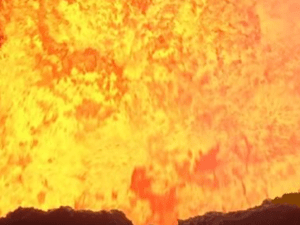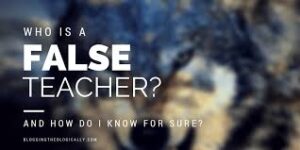- Maduro Ally Fires Ballistic Missiles Near U.S. Allies Hosting American Troops After Venezuela Op.
In U.S. News, War, World News
- Disgusting, Diabolical, Mind Boggling, Unfettered Greed.
In U.S. Economy, U.S. News
- Flood Expert Finds Evidence for Noah’s Flood.
In Archaeological Finds Which Prove The Bibles Authenticity., The Bible, U.S. News, World News
- Q&A: Do You Have A Problem With Ambition And Ambitious People?
In Q&A
- Make Sure You Know For Certain Who The Woman Is You’re Marrying And What Her True Motivations Are: A Guy Breaks Down Why 80% Of Divorces Are Initiated By Women! “Men Love Women For Who They Are, Women Love Men For What They Can Provide”.
In Relationship Advice, U.S. News
- FBI Raids Miami Mansion, Discovers Sheriff & 17 Cops on Cartel Payroll, $1.4B Exposed | US Military.
In Crime, Drug Cartels, U.S. News
- Is The Fourth Reich/The Final Resurrection Of The Holy Roman Empire Rising?: Germany Is Rearming Under The Fake Guise Of Preparing For A Russian Threat To The Whole Of Europe.
In Russia, Ukraine, War, World News
- Woke Disney STRUGGLING & Losing MILLIONS at Box Office.
In The Collapse Of Woke Extreme Radical Far Left Liberal Big Business And Big Tech, The Destructive Practices Of Radical Liberal Fascist Companies., U.S. News, Walt Disney's Woes
- Disney’s 2025 Collapse Worse Than You Think.
In The Collapse Of Woke Extreme Radical Far Left Liberal Big Business And Big Tech, The Destructive Practices Of Radical Liberal Fascist Companies., U.S. Economy, Walt Disney's Woes
- Abominable Sin Which Is Incurring The Anger Of God Is The Problem Not Man Made Climate Change: 10 U.S. Cities Where Water Shortages Could Trigger a Housing Collapse.
In Bible Prophecy, Destructive Weather Events, U.S. News
- Demonic Barbaric Massacre And Child Abduction In Nigeria: More Than 250 Nigerian School Children Remain In Captivity After 50 Escaped.
In World News
- Are Monsanto And Others Trying To Control The Farming Industry?: We Went to Arkansas. The Farm Crisis Will Shock You.
In Agriculture/ Farming, U.S. News
- This Guy Is Speaking The Truth While The Women Spew Words They Don’t Really Mean.
In Radical liberal Left Hypocrisy, U.S. News
- You Can’t Rely On Celebrities, Entertainers, Politicians, False Ministers, Etc, To Influence Your Decision Making Because They Will Always Support And Promote Who Or What Is Paying Them The Money. Let God And His Word Be Your Guiding Light. And Not Men Or Women And Their Greedy, Selfish, Ambitions.
In The Exploitation Of The Black Community, The Homosexual/Lesbian Sickness & Agenda, The Rise Of Pedophilia, The Satanic And Diabolical Homosexual & Lesbian Plan To Emasculate Men And Masculate Women., The Truth About Transgenderism, U.S. News
- I Certainly Don’t Agree With Everything Bernie Sanders Says, But He Is Right Concerning A Number Of These Issues. That If Not Addressed Can Turn Into Serious Crisis In This Country.
In Health, Politics, U.S. Economy, U.S. News
- Q&A: Why Did You Take Your Donations Page Down?
In Announcements, Q&A
- Romans 1:26-32, 2 Corinthians 11: 13-15, 2 Peter 2:1-3, COGIC Minister Arrested For Inappropriate Behavior With Minors.
In False Prophets, Sexual Immorality, The Homosexual/Lesbian Sickness & Agenda, The Rise Of Pedophilia, The Satanic And Diabolical Homosexual & Lesbian Plan To Emasculate Men And Masculate Women., The Truth About Transgenderism, U.S. News
- Matthew 5:9– Trump Signs Historic Gaza Peace Plan.
In Politics, President Trump, U.S. News, World News
- This Young Lady Speaks Words Of Wisdom Layered With Truth… Overdraft Fees… LOL.
In True Statements
- Speaker Johnson On Shutdown: Dems Want Healthcare For “Illegals”
In Illegal Immigration, Illegal Immigration Woes, Political Corruption, Politics, U.S. News
- Speaker Johnson: Trump to Tackle Healthcare After Shutdown Vote.
In Political Corruption, U.S. News
- Pete Hegseth, Secretary Of Defense.
In China, Technology, U.S. News, War
- U.S. Military Collides With Sinaloa Cartel in Kentucky — Then This Happened.
In Crime, U.S. News
- Col Doug Macgregor: TOMAHAWK MISSILES – If Ukraine Gets & Uses, U.S. Will be at War w/Russia.
In Russia, U.S. News, Ukraine, War
- Jeffrey Sachs: “Russia Already Achieved Victory — The West Refuses to See It”
In Russia, U.S. News, Ukraine, War
- My Community Is The Community Of The Righteous. No One Else. Skin Color Is A Non Factor. My Spiritual Brothers And Sisters Are The Righteous. Matthew 12:50.
In Announcements
- I Think They All Need To Tone It Down A Bit.
In U.S. News, World News
- Judge Joe Brown Says Tyler Perry Is Anti-Masculine, Tears Down Straight Black Men & Calls Him Poison.
In Massive Secret Homosexual/Pedophile Indoctrination Of Children Underway., The Destructive Corrupting Enslaving Effects Of Sin., The Destructive Practices Of Radical Liberal Fascist Companies., The Homosexual/Lesbian Sickness & Agenda, The Rise Of Pedophilia, The Satanic And Diabolical Homosexual & Lesbian Plan To Emasculate Men And Masculate Women., The Truth About Transgenderism, True Statements, U.S. News
- No Thanks, My Website Is Not For Sale.
In Announcements
- Disney World Attendance DROPS EVEN LOWER Than We Had Predicted for 2025! No Lines, No Crowds, EMPTY!
In U.S. News, Walt Disney's Woes
- Disney Is In Big Trouble, They Are Destroying Themselves.
In U.S. News, Walt Disney's Woes
 Interest Appears To Be Growing. Praise God!
Interest Appears To Be Growing. Praise God!In Acknowledgements, True Statements
- The Information You Requested Has Been Sent.
In Announcements
- Kash Patel Explains New Evidence In Kirk killing, Reacts To Clash With Dems In Senate.
In Far Left Ultra Radical Extremists, Massive Secret Homosexual/Pedophile Indoctrination Of Children Underway., Politics, Radical liberal Left Hypocrisy, The Rise Of Pedophilia
- Queer Militia. Surveillance Video. And The World’s Darkest Chatroom. The Plotters Who Eerily Predicted The Charlie Kirk Assassination Plan.
In Far Left Ultra Radical Extremists, Political Corruption, Radical liberal Left Hypocrisy, The Attack On Free Speech And Basic American Freedoms., The Corruption And Destruction Of American Society And The World Community, The Homosexual/Lesbian Sickness & Agenda, The Rise Of Fascism In America, The Rise Of Pedophilia, The Satanic And Diabolical Homosexual & Lesbian Plan To Emasculate Men And Masculate Women., The Truth About Transgenderism, U.S. News
- This Is Why You Should Not Be Teaching God’s Word If You Are Not Obedient To It And Versed In It.
In Articles, False Prophets, Is It Wrong To Judge?, The Bible
- This Is What’s Fueling Abominable Rebellion Against God In Society Today.
In Articles, Bible Prophecy, Is It Wrong To Judge?, The Bible
- Trans ‘Partner’ Of Charlie Kirk Suspect ‘Praised Joe Biden’ Before Conservative Activist Was Shot… As Link To Bizarre ‘Furry’ Lifestyle Revealed.
In Massive Secret Homosexual/Pedophile Indoctrination Of Children Underway., Sexual Immorality, The Attack On Free Speech And Basic American Freedoms., The Homosexual/Lesbian Sickness & Agenda, The Rise Of Fascism In America, The Rise Of Pedophilia, The Satanic And Diabolical Homosexual & Lesbian Plan To Emasculate Men And Masculate Women., The Truth About Transgenderism, U.S. News
- Speaking Facts.
In Far Left Ultra Radical Extremists, Homegrown Terrorism, Political Corruption, Politics, The Attack On Free Speech And Basic American Freedoms., The Rise Of Fascism In America, The Spirit Realm, U.S. News
- Lefties Losing It: The Left is Celebrating Charlie Kirk’s Murder.
In Far Left Ultra Radical Extremists, Feminist Fanaticism, Homegrown Terrorism, U.S. News
- Having Trouble Sleeping At Night?
In Health
- Is The German Led European Union Planning To Put Troops In Ukraine?
In European Union, NATO, Russia, Ukraine, War
- Romans 16:17-18, 2 Corinthians 11:13-15, 2 Peter 2:1-3: Florida Church Leaders ‘Enslaved Workers And Spent Donation Money On Lavish Lifestyle Including Luxury Cars, Jet Skis And $10K On Sea Food’
In False Prophets, U.S. News
- Romans 1:26-32: Disturbing And Creepy: Minneapolis School Shooter Posted An 11 Min. Video Showing His Manifesto And Guns, Wrote “Israel Must Fall & K*ll Trump” On His Rifles, (WARNING! STRONG LANGAUGE)
In Massive Secret Homosexual/Pedophile Indoctrination Of Children Underway., The Homosexual/Lesbian Sickness & Agenda, The Rise Of Pedophilia, The Satanic And Diabolical Homosexual & Lesbian Plan To Emasculate Men And Masculate Women., The Truth About Transgenderism, U.S. News
- Acts Of A Deranged Coward: Minneapolis School Shooter Robin Westman Revealed As Transgender And Anti-Trump As Democrats Call For Shooting To Be De-Politicized….Romans 1:26-32.
In Massive Secret Homosexual/Pedophile Indoctrination Of Children Underway., The Homosexual/Lesbian Sickness & Agenda, The Rise Of Pedophilia, The Satanic And Diabolical Homosexual & Lesbian Plan To Emasculate Men And Masculate Women., The Truth About Transgenderism, U.S. News
- This Is True For So Many People.
In Acknowledgements, True Statements
 Nice To Know You Are Being Heard, Understood, And Recognized Out There. Although They Misspelled The Name Of My Site, Maybe They Will Correct That In The Future. But, Good Article, I Enjoyed Reading It.
Nice To Know You Are Being Heard, Understood, And Recognized Out There. Although They Misspelled The Name Of My Site, Maybe They Will Correct That In The Future. But, Good Article, I Enjoyed Reading It.In Acknowledgements, Commentary, The Truth Plain An Simple, U.S. News
- WATCH LIVE: President Trump, Russian President Putin Hold Joint News Conference In Alaska.
In Politics, President Trump, Russia, U.S. News, Ukraine, World News
- Ego And Arrogance
In Announcements, Articles
 Simple Steps To Fitness For Beginners. For Men And Women.
Simple Steps To Fitness For Beginners. For Men And Women.In Fitness, Health
- They Won’t Get Away With This: Tulsi Gabbard.
In Political Corruption, Politics, President Trump, Russia, U.S. News
- That Sounds Like A Great Idea: NO MORE INCOME TAX?! Trump Says He Wants To Eliminate All Income Taxes For People Making Under $200K And Pay For It With Tariffs On Other Countries!
In Politics, President Trump, U.S. Economy, U.S. News
- ATTENTION!!!!: Satan Has Been At It.
In Announcements
- ATTENTION!
In Announcements
 We’re Taking Prayer Request.
We’re Taking Prayer Request.In Announcements
 Listen: What You ‘MUST’ Do To Receive The Holy Spirit.
Listen: What You ‘MUST’ Do To Receive The Holy Spirit.In Audio, The Bible
 Are You Really Winning Or Are You Really Losing?
Are You Really Winning Or Are You Really Losing?In Articles, The Bible, U.S. News, World News
- Convince Me: You Need More Than That, Much More.
In Bible Prophecy, Debates
 Q&A: How Do You Respond To Those Who Say Whites Are Inherently Smarter Than Blacks Because Of Technological Advancements, Etc?
Q&A: How Do You Respond To Those Who Say Whites Are Inherently Smarter Than Blacks Because Of Technological Advancements, Etc?In Black History, History Of Black Oppression, Q&A, The African American Community, U.S. News
 Coming Soon: Dangerous Doctrines.
Coming Soon: Dangerous Doctrines.In Announcements
- Tulsi Gabbard Responds To Obama Office’s Denial Letter.
In Political Corruption, Politics, President Trump, The Corruption And Destruction Of American Society And The World Community, The Obama Controversy, U.S. News
- Matthew 15:14–The Wolf In Sheep’s Clothing Continues To Spew Lies, Lies, And More Lies.
In Massive Secret Homosexual/Pedophile Indoctrination Of Children Underway., Political Corruption, Politics, The Homosexual/Lesbian Sickness & Agenda, The Rise Of Pedophilia, The Satanic And Diabolical Homosexual & Lesbian Plan To Emasculate Men And Masculate Women., The Truth About Transgenderism, U.S. News
- If You Need Me I’m Here Just Call.
In Acknowledgements, Announcements
 Listen: Is Jesus Christ’s Doctrine Different Than God’s Doctrine?
Listen: Is Jesus Christ’s Doctrine Different Than God’s Doctrine?In Audio, The Bible
- Former President Obama And His Administration Accused Of Treason.
In Political Corruption, Politics, President Trump, The Corruption And Destruction Of American Society And The World Community, The Obama Controversy, U.S. News
- Securing Absolute Power And Control By Buying All The Gold?: Something BIG Is Coming… Keep Your Eye on BlackRock.
In U.S. Economy, U.S. News, World News
 Keep Up The Great Work Don’t Stop!: Supreme Court Lets Parents Opt Kids Out of Lessons Using LGBTQ+ Books.
Keep Up The Great Work Don’t Stop!: Supreme Court Lets Parents Opt Kids Out of Lessons Using LGBTQ+ Books.In Sexual Immorality, The Homosexual/Lesbian Sickness & Agenda, The Rise Of Pedophilia, The Satanic And Diabolical Homosexual & Lesbian Plan To Emasculate Men And Masculate Women., The Truth About Transgenderism
- Be Careful And Pay Attention: Man Says A New Conspiracy Claims A ‘Biological Terror Attack’ Will Happen On July 4th! “It Will Be Called Nipah Virus”
In Disease, Health, Science Genetics And Robotics
 Q&A: Does Phillipians 2:12 Mean To Actually Fear God Or Respect Him?
Q&A: Does Phillipians 2:12 Mean To Actually Fear God Or Respect Him?In Articles, Q&A
 Q&A: Mr. Bohanon Are You Married, Single, Or Dating, Anyone?
Q&A: Mr. Bohanon Are You Married, Single, Or Dating, Anyone?In Q&A
- “We Love You God. Protect Our Military” Trump Warns Iran Of “Far Greater” Strike After U.S. Obliterates 3 Nuclear Sites In Midnight Air Raid Broadcast.
In Politics, President Trump, Radical Islamic Terror, Radical Islamic Terrorism, U.S. News, World News
- Tyler Perry Sued for Sexual Assault in $260M Lawsuit.
In Massive Secret Homosexual/Pedophile Indoctrination Of Children Underway., The Homosexual/Lesbian Sickness & Agenda, The Satanic And Diabolical Homosexual & Lesbian Plan To Emasculate Men And Masculate Women., U.S. News
 Romans 1: 26-32–Former Teacher Accused Of Sexually Assaulting And Murdering The Baby He Was Trying To Adopt Appears In Court.
Romans 1: 26-32–Former Teacher Accused Of Sexually Assaulting And Murdering The Baby He Was Trying To Adopt Appears In Court.In The Homosexual/Lesbian Sickness & Agenda, The Rise Of Pedophilia, The Satanic And Diabolical Homosexual & Lesbian Plan To Emasculate Men And Masculate Women., U.S. News
- The Wicked Will Always Refer To The Truth Of God’s Judgments As Negative And Negative Vibes.
In Announcements, Articles, Statements
- Trump Intelligence Chief Tulsi Gabbard Warns World On Brink Of ‘Nuclear Annihilation’ In Terrifying Video.
In Nuclear War, U.S. News, War
- 1.5 Million Dead – Is This Ukraine’s ‘Victory’? COL. Douglas Macgregor.
In More Honest Reporting On The Russia Ukraine War, Ukraine, War
- Speaking Facts.
In Articles, Feminist Fanaticism
- My Site Was Down For A Couple Of Days.
In Announcements
- Targeting Christians As A Way To End Christianity?: Vadym Novynskyi…Zelensky’s Mission to End Christianity in Ukraine & Why America Is Still Funding It.
In The Corruption And Destruction Of American Society And The World Community, U.S. News, Ukraine, World News
- Smooth Soulful Sounds.
In Music
- Be Careful Out There: HIV Is On The Rise.
In Disease, Health, Health And Fitness
- I See All The Support Out There.
In Acknowledgements, Announcements
- The Hidden Bunkers And Underground Basis Of The Elites: Catherine Fitts… Power Grids, Bankers vs the West, Secret Underground Bases, and Extinction Events.
In Far Left Ultra Radical Extremists, Nuclear War, Political Corruption, The Attack On Free Speech And Basic American Freedoms., The Corruption And Destruction Of American Society And The World Community, The Destructive Practices Of Radical Liberal Fascist Companies., The Rise Of Fascism In America, U.S. News, World News
- LIVE: Trump Gives Speech At Rally For First 100 Days Back In White House.
In Politics, President Trump, U.S. News
- The Result Of Pushing The Man Made Climate Change Agenda?: Europe in Darkness? Blackout Terror Grips Spain, Portugal, France as Power Failure Triggers Panic.
In European Union, World News
- Heartless, Selfish, Inconsiderate, And Disrespectful.
In Announcements
- A Message To My Family.
In Announcements
- Pam Bondi Announces Transgender Lawsuit Against Maine.
In The Truth About Transgenderism, U.S. News
- Your Words Don’t Match Your Actions.
In Announcements
- This Is The Problem With What He’s Saying.
In Articles
- Speaking Facts. (Warning! Strong Language.)
In Articles, The Homosexual/Lesbian Sickness & Agenda, The Rise Of Pedophilia, The Satanic And Diabolical Homosexual & Lesbian Plan To Emasculate Men And Masculate Women., The Truth About Transgenderism
- This Is What Happens When You Try To Lift Excessively Heavy Beyond Your Limits With No Supervision Trying To Impress People.
In Fitness, Health
- Just A Message To My Lord And Savior Jesus Christ.
In Acknowledgements, Announcements
- Please Sit Down.
In Acknowledgements, Humor
- The Driver Issue Is Resolved I Will Be Posting New Content Soon.
In Announcements
 Q&A: Why Is The Bible So Hard To Understand?
Q&A: Why Is The Bible So Hard To Understand?In Articles, Q&A
- President Donald Trump’s Speech To Congress 3/4/25.
In Politics, President Trump, U.S. News
- Are Ice Raids Hurting Or Helping The Country?
In Illegal Immigration, Illegal Immigration Woes, U.S. News
- People Who Hate And Reject The Truth As God And His Word Define It Will Eventually Become What He’s Describing In This Video: 8 Evident Signs There Is An Evil Person In Your Life.
In Health, Health And Fitness, True Statements
- Why Give It To Corrupt, Destructive, And Dangerous, Agenda Driven Groups And Organizations And Not The American People?: If They’re Really Focused On Enriching The American People This Should Be A No Brainer. Elon Musk Considers ‘DOGE Dividend’ That Would Send $5,000 Check To All Americans Following Massive Budget Cuts.
In Political Corruption, Politics, President Trump
- John Kennedy Breaks Down Federal Spending ‘Line By Line’ In Epic Defense Of Elon Musk.
In Political Corruption, Politics, U.S. News, World News
- Teach Them Responsible Money Management.
In Announcements, Articles
- All The ‘Crazy’ USAID Programs On Blast By Republicans… Including A Bizarre $25K Drag Queen Show In Ecuador.
In Massive Secret Homosexual/Pedophile Indoctrination Of Children Underway., The Homosexual/Lesbian Sickness & Agenda, The Rise Of Pedophilia, The Satanic And Diabolical Homosexual & Lesbian Plan To Emasculate Men And Masculate Women., The Truth About Transgenderism, U.S. News, World News
- Parent Teacher Meeting Erupts Over LGBTQ Naked Pride Book Being Given To Kindergarteners.
In Massive Secret Homosexual/Pedophile Indoctrination Of Children Underway., The Homosexual/Lesbian Sickness & Agenda, The Rise Of Pedophilia, The Satanic And Diabolical Homosexual & Lesbian Plan To Emasculate Men And Masculate Women., The Truth About Transgenderism
- NASA Issues Emergency Warning. ‘City-Killer’ Asteroid Locked On Earth… Impact Could Be 500x Stronger Than Hiroshima.
In Asteroid Incidents, Science Genetics And Robotics
- Lord God Provide The Support And Funding And I Will Bring Them To You.
In Announcements, The Bible
- P. Diddy’s Former ‘Bad Boy’ Colleagues Spill Studio Secrets.
In Music, Music Industry Malice, The Exploitation Of The Black Community, U.S. News
- Stay Away From The Streets And Street Stuff.
In Announcements
- The Numbers Don’t Lie: USAID Under The Biden Administration Appears To Have Been An Agenda Driven Agency That Was Full Of Waste And Corruption.
In The Collapse Of Woke Extreme Radical Far Left Liberal Big Business And Big Tech, The Destructive Practices Of Radical Liberal Fascist Companies., U.S. News
- Will This Technology Transform The World As We Know It?
In Science Genetics And Robotics
- My Phones Ringer Has Been Off.
In Announcements
- Will This Be The End Of Disease, Aging, And Death As We Know It?
In Science Genetics And Robotics, U.S. News, World News
- What USAID Spent U.S. Taxpayers Money On.
In The Collapse Of Woke Extreme Radical Far Left Liberal Big Business And Big Tech, The Destructive Practices Of Radical Liberal Fascist Companies., U.S. News
- Use The Circumstance To Push You Closer To God Not Further Away.
In Articles, Statements, The Bible
- Trump Addresses World Economic Forum ‘I Will Make Largest Tax Cuts In History.
In Politics, President Trump, U.S. Economy
- Listen.
In Uncategorized
- Your Support Would Be Greatly Appreciated.
In Announcements
- President Elect Donald Trumps Inauguration Speech 2025.
In Politics, President Trump, U.S. News
- Get A Hobby Sit Down And Chill.
In Acknowledgements
- Q&A: Did You Pray For The Wildfires To End?
In Q&A
- Who Is Really Controlling The Politicians?: A Hidden Political Agenda Using Politicians As Puppets?
In Political Corruption, Politics
- The Very Real And Hidden Dangers Of AI.
In Technology, U.S. News
- Is GMO Food Killing Us And The Environment?
In U.S. News
- Encouraging Reliance on Smart Devices and the Internet as a Way to Increase Surveillance and Control?
In Online Spying, Technology, U.S. News, World News
- How The Radical Liberal Left Media Controls The Minds Of Unsuspecting Citizens.
In The Dishonest And Corrupt Liberal Media, U.S. News, World News
- I’m Praying For You.
In Acknowledgements
- My Official Marriage Announcement.
In Announcements
 Homosexual Parents Sexually Abused Sons They Adopted in ‘House of Horrors’.
Homosexual Parents Sexually Abused Sons They Adopted in ‘House of Horrors’.In The Homosexual/Lesbian Sickness & Agenda, The Rise Of Pedophilia, The Satanic And Diabolical Homosexual & Lesbian Plan To Emasculate Men And Masculate Women., The Truth About Transgenderism
 Q&A: Can You Have An Only Fans Account And Be A Christian At The Same Time? Psalm 101:5-8.
Q&A: Can You Have An Only Fans Account And Be A Christian At The Same Time? Psalm 101:5-8.In Q&A
- Jay-Z’s ‘Son’ Claims Star Refused Paternity Test For Years Because His Mom Was ‘Underage At The Time.
In Music Industry Malice, Sexual Immorality, The Exploitation Of The Black Community, U.S. News
- 15 Signs Disney Is Falling Apart Before Our Eyes.
In The Attack On Free Speech And Basic American Freedoms., The Collapse Of Woke Extreme Radical Far Left Liberal Big Business And Big Tech, The Destructive Practices Of Radical Liberal Fascist Companies., The Rise Of Fascism In America, Walt Disney's Woes
- Colorado Tren De Aragua Apartment Complex Is Turned Into Torture Hub By Migrants.
In Homegrown Terrorism, Illegal Immigration, Illegal Immigration Woes, U.S. News
- Google Slammed For ‘Going Woke’ And Using Genderfluid Influencer In Its Christmas Advert.
In Massive Secret Homosexual/Pedophile Indoctrination Of Children Underway., The Rise Of Pedophilia, The Satanic And Diabolical Homosexual & Lesbian Plan To Emasculate Men And Masculate Women., The Truth About Transgenderism
- Wisconsin Christian School Shooter Identified As 15-Year Old Natalie Rupnow, Goes By ‘Samantha.
In Homegrown Terrorism, U.S. News
- Drones In The Skies: A Secret Government Project Or Form Of Government Deception For Diabolical Reasons, Foreign Adversaries, Or The Secret Widespread Testing Of And Then Introduction Of Flying Vehicles?
In Science Genetics And Robotics, Strange Unexplained Events., Technology, U.S. News
- 6 Breaking Arrest Details in United Healthcare CEO Murder Case.
In Crime, U.S. News
 Q&A: How Do You Respond To People Who Say If You Call Them Out For Their Wrong Doing That Means You Are A Hater Who Hates Them Only Because You Secretly Have Internal Issues That You Are Dealing With Yourself And Your Hate For Them Is An Example Of Self Hate?
Q&A: How Do You Respond To People Who Say If You Call Them Out For Their Wrong Doing That Means You Are A Hater Who Hates Them Only Because You Secretly Have Internal Issues That You Are Dealing With Yourself And Your Hate For Them Is An Example Of Self Hate?In Q&A
 Ye That Love The Lord Hate Evil…Psalms 97:10, Romans 12:9.
Ye That Love The Lord Hate Evil…Psalms 97:10, Romans 12:9.In The Bible
- Syria On The Verge Of Collapse?
In War, World News
- She’s Right: Laura…Young People Are Learning Degrading Practices From The Porn Industry.
In Articles, Sexual Immorality
- They’ve Been Responsible For Destroying Millions Of Lives. So Some Form Of Punishment Is Probably In Order.
In Articles, Big Tech Plutocracy, The Collapse Of Woke Extreme Radical Far Left Liberal Big Business And Big Tech, The Corruption And Destruction Of American Society And The World Community, The Destructive Practices Of Radical Liberal Fascist Companies., The Rise Of Fascism In America
- 2 Peter 2:1-3…The End of TD Jakes Ministries. POTTERS HOUSE Full Sunday Service Breakdown, False Teaching EXPOSED.
In Articles, False Prophets, The Exploitation Of The Black Community
- 2 Timothy 3:12-16… The Plan To Break Apart Google… RIP Chrome
In Articles, Far Left Ultra Radical Extremists, Massive Secret Homosexual/Pedophile Indoctrination Of Children Underway., The Attack On Free Speech And Basic American Freedoms., The Collapse Of Woke Extreme Radical Far Left Liberal Big Business And Big Tech, The Corruption And Destruction Of American Society And The World Community, The Destructive Practices Of Radical Liberal Fascist Companies., The Dishonest And Corrupt Liberal Media, The Rise Of Fascism In America
- Marjorie Taylor Greene Probably Should Be Viewed As A Valuable Asset And As A Necessity In These Times: How Marjorie Taylor Greene’s Rant About The Trans Congresswoman Forced Mike Johnson To Act On Restroom Ban.
In The Truth About Transgenderism, U.S. News
- Donald Trump Says We Are Close To World War 3 & Wants To Avoid It At All Costs! “We Need Peace Without Delay”.
In NATO, Nuclear War, Politics, President Trump, Russia, U.S. News, Ukraine, War
- Putin’s Nuclear Order: List Of All Nuke Weapons At Russia’s Disposal.
In NATO, Nuclear War, Politics, Russia, Ukraine, War
- Amish Battalions Riding For Trump?! Dude In Tears Claims The Amish Saved Pennsylvania Leading To Trump’s Victory Because They Ain’t “Brainwashed”!
In Articles, Politics, President Trump, The Dishonest And Corrupt Liberal Media, U.S. News
- Pushing For World War While On The Way Out?: Biden Okays Strikes Within Russia Using American Made Long Range Missiles To Be Supplied To Ukraine.
In Russia, U.S. News, Ukraine, War
- The Ultra Extreme Radical Liberal Left Promises To Keep Fighting To Destroy Your Lives, Your Family’s Lives, And The Country, For Their Own Lusts, Greed, And Selfish Interests.
In Articles, Homegrown Terrorism, Illegal Immigration, Illegal Immigration Woes, Massive Secret Homosexual/Pedophile Indoctrination Of Children Underway., Politics, Radical liberal Left Hypocrisy, The Corruption And Destruction Of American Society And The World Community, The Destructive Practices Of Radical Liberal Fascist Companies., The Homosexual/Lesbian Sickness & Agenda, The Satanic And Diabolical Homosexual & Lesbian Plan To Emasculate Men And Masculate Women., U.S. News
- LOL. Lord Forgive Me For Posting This. But You Have To Laugh Sometimes. It Appears To Be On. Holy Smokes, I Didn’t Know Earl Scheibs Was Back In Business With The 99 Dollar Epoxy Hair Gloss Over Special. (Warning! Strong Language.)
In Humor
- This Guy Is A Complete Fraud And A Hypocrite.
In False Prophets, History Of Black Oppression, Illegal Immigration, Illegal Immigration Woes, Political Corruption, The African American Community, The Exploitation Of The Black Community, U.S. News
- Praise God.
In Politics, President Trump
- Congratulations President Donald Trump.
In Politics, President Trump
- Lefties Losing It.
In Articles, Political Corruption, Politics, The Homosexual/Lesbian Sickness & Agenda, The Rise Of Pedophilia, The Satanic And Diabolical Homosexual & Lesbian Plan To Emasculate Men And Masculate Women., The Truth About Transgenderism, U.S. News
- Romans 1:26-32-LIVE Press Conference: Ex-Abercrombie & Fitch CEO Mike Jeffries Arrested On Sex Trafficking Charges.
In Articles, Massive Secret Homosexual/Pedophile Indoctrination Of Children Underway., Sexual Immorality, The Homosexual/Lesbian Sickness & Agenda, The Rise Of Pedophilia, The Satanic And Diabolical Homosexual & Lesbian Plan To Emasculate Men And Masculate Women., U.S. News
- The Kamala And Obama Satanic Cabal Hate God: Trump Supporter Reveals Kamala Harris’ ‘Evil’ Response When He Said ‘Jesus Is Lord’ After Being Told He Was ‘At The Wrong Rally.
In Political Corruption, Politics, The Bible, The Homosexual/Lesbian Sickness & Agenda, The Rise Of Pedophilia, The Satanic And Diabolical Homosexual & Lesbian Plan To Emasculate Men And Masculate Women., The Truth About Transgenderism, U.S. News
- This Is Why You Don’t Mess With Quija Boards Or Any Other Form Of Occultism.
In Articles, Science Genetics And Robotics, Strange Unexplained Events.
- Facts!!: Human Identity And The Family Of God
In The Bible
- Catching Pedophiles In The Act.
In The Homosexual/Lesbian Sickness & Agenda, The Rise Of Pedophilia, The Satanic And Diabolical Homosexual & Lesbian Plan To Emasculate Men And Masculate Women., The Truth About Transgenderism
- Tonight, Tim Walz Will Debate JD Vance. But How On Earth Can We Trust A Single Word He Says? Read Our Damning Audit Of All His Misleading Statements – And Even Outright Lies.
In Political Corruption, Politics
 Listen: From Men, To Gods, Gods Glorious Plan For Mankind.
Listen: From Men, To Gods, Gods Glorious Plan For Mankind.In Audio, Bible Prophecy, Coming Soon, The Bible
- ICE Director Tells US Government Over 13K Illegals Convicted Of Murder Have Been Released Into US!
In Homegrown Terrorism, Illegal Immigration, Illegal Immigration Woes, Political Corruption, Politics, World News
- The Only Drug You Can’t Survive.
In Health, U.S. News, World News
- My First Book Of A Secular Nature Will Be For Sale Soon.
In Uncategorized
- Romans 1:18-32: He’s Lying. When You Interview Individuals Like This You Only Give Them A Platform To Spread More Lies To Deceive And Lead The Ignorant Down Paths Of Confusion And Destruction.
In Articles, The Homosexual/Lesbian Sickness & Agenda, The Rise Of Pedophilia, The Satanic And Diabolical Homosexual & Lesbian Plan To Emasculate Men And Masculate Women., The Truth About Transgenderism, U.S. News
- It Begins…Things Are Getting Out Of Hand: Armed Migrants Take Over Apartments In NYC!
In Illegal Immigration, Illegal Immigration Woes, Political Corruption, U.S. News
- Minute By Minute, What Would Happen If A World-Destroying Asteroid Was Detected Coming To Earth – After ‘Greenish’ Space Fireball Crashed Into Our Planet This Week.
In Asteroid Incidents, Bible Prophecy, Science Genetics And Robotics
- ABC Labeled A Disgrace: Biased Moderators Blasted As They Turn On Trump During Debate.
In Political Corruption, Politics, Radical liberal Left Hypocrisy, The Dishonest And Corrupt Liberal Media
- Dallas Police Confirm Venezuelan Gang Tren de Aragua Is In Texas City…
In Gun Violence, Illegal Immigration, Illegal Immigration Woes, Political Corruption, Politics, The African American Community
- Donald Trump’s Interview With The Daily Mail At Mar-a-Lago In FULL.
In Politics, President Trump
- Tim Walz’s Brother Warns Democratic VP Hopeful ‘Is Not The Type Of Character’ You Want In The White House: ‘The Stories I Could Tell’
In Political Corruption, Politics, U.S. News
- Ezekiel 7:24–And I Will Give Their Habitations To Worst Of The Heathen: Venezuelan Gangs Really Taking Over Apartment Complexes In America? (Warning! Strong Language.)
In Illegal Immigration, Illegal Immigration Woes, U.S. News
- The Truth Is In The Details.
In Articles, Political Corruption, Politics, The Homosexual/Lesbian Sickness & Agenda, The Rise Of Pedophilia, The Satanic And Diabolical Homosexual & Lesbian Plan To Emasculate Men And Masculate Women., The Truth About Transgenderism
- You Will Never Find What You’re Looking For At Events Or At Clubs.
In Acknowledgements, Articles
- RFK Jr. Drops Out, Endorses Trump: FULL SPEECH
In Political Corruption, Politics, U.S. News
- Lefties Losing It: John Stewart Lol.
In Far Left Ultra Radical Extremists, Humor, Political Corruption, Socialisms Failure And Woes, The Attack On Free Speech And Basic American Freedoms., The Corruption And Destruction Of American Society And The World Community, The Dishonest And Corrupt Liberal Media
- New Blood Analysis Of The Shroud Of Turin ‘Supports Biblical Story About Jesus’ Crucifixion’.
In The Bible, U.S. News
- Start With About Two Exercises Then As The Flexor Muscles Get Stronger You Can Add More.
In Health, Health And Fitness
- The Threat People Like Obama And Neil deGrasse Tyson Pose To America.
In Political Corruption, Politics, The Attack On Free Speech And Basic American Freedoms., The Corruption And Destruction Of American Society And The World Community, The Destructive Practices Of Radical Liberal Fascist Companies., The Exploitation Of The Black Community, The Rise Of Fascism In America, U.S. News
- James 2:13–This Man Is About To Be Executed. He’s Innocent.
In U.S. News
- Illegals Raping U.S. Citizens. Kamala’s Ultra Extreme Radical Illegal Immigrant Policies. Liberal Packs Dropping Tens Of Millions In Swing States To Turn Out Latino Votes For Kamala. George Soros Backed Latino Organizations Paying Latinos To Say They Don’t Like Or Support Donald Trump. And The List Goes On.
In Illegal Immigration, Illegal Immigration Woes, Political Corruption, Politics, U.S. News
- Host Starts Crying Frustrated Kamala is Losing Black Support.
In Black History, Illegal Immigration, Illegal Immigration Woes, Political Corruption, Politics, The African American Community
- The Full Donald Trump And Elon Musk Interview: Assassination Attempt, Iran-Israel, Russia-Ukraine, Kamala-Biden, US Election.
In Politics, President Trump, U.S. News
- Is Kamala Harris Pushing A Depopulation Agenda By Way Of Child Castration, Abortion, And By Pushing The LGBTQ Agenda That Also Puts An End To Child Reproduction?
In Articles, Illegal Immigration, Illegal Immigration Woes, Massive Secret Homosexual/Pedophile Indoctrination Of Children Underway., Political Corruption, Politics, The Homosexual/Lesbian Sickness & Agenda, The Rise Of Pedophilia, The Satanic And Diabolical Homosexual & Lesbian Plan To Emasculate Men And Masculate Women., The Truth About Transgenderism
- How Seven Of Kamala Harris’ Most Controversial Policies Could Impact YOU… If She Introduces Them Again During Her Run For President.
In Political Corruption, Politics
- Farmers BREAK John Deere As DIVERSITY And PRIDE PARADES Get CANCELLED!
In The Collapse Of Woke Extreme Radical Far Left Liberal Big Business And Big Tech, The Destructive Practices Of Radical Liberal Fascist Companies., The Homosexual/Lesbian Sickness & Agenda, The Rise Of Pedophilia, The Satanic And Diabolical Homosexual & Lesbian Plan To Emasculate Men And Masculate Women.
- Deadpool & Wolverine BREAKS $1 BILLION As Studios LOSE $15 BILLION!
In The Collapse Of Woke Extreme Radical Far Left Liberal Big Business And Big Tech, Walt Disney's Woes
 Q&A: In A Recent Article You Said If It’s Gods Will Trump Will Win. Does That Mean If The Extreme Radical Democrat Party Wins It’s Also Gods Will?
Q&A: In A Recent Article You Said If It’s Gods Will Trump Will Win. Does That Mean If The Extreme Radical Democrat Party Wins It’s Also Gods Will?In Q&A
- Coming Soon: The Consequences Of Putting Jesus Christ To An Open Shame – Hebrews 6:6-8.
In Coming Soon, Uncategorized
- The Days Of Faking Like You Are Really A Servant Of God Are Over. God Knows Them That Are His 2 Timothy 2:19. It’s Time To Get Serious And Really Repent. Discerning the Time of Jesus’ Return.
In Bible Prophecy, The Bible, U.S. News
- If You Have A View Or An Opinion That’s contrary To The Radical Views Of The Biden Administration They Can And Will Put You On A Terror Watch List?
In Online Spying, Political Corruption, Politics
- Kamala Harris Made It A Nonviolent Crime To Commit Sex Crimes With Minors.
In Political Corruption, Politics, The Homosexual/Lesbian Sickness & Agenda, The Rise Of Pedophilia, The Satanic And Diabolical Homosexual & Lesbian Plan To Emasculate Men And Masculate Women., The Truth About Transgenderism, U.S. News
- They Don’t Want Compromise They Want Absolute Control Of Everything To Advance An Ultra, Radical, Evil, Diabolical, Marxist Agenda, That Includes Promoting And Advancing A Pedophile Agenda As Well.
In Political Corruption, Politics, The Homosexual/Lesbian Sickness & Agenda, The Rise Of Pedophilia, The Satanic And Diabolical Homosexual & Lesbian Plan To Emasculate Men And Masculate Women., The Truth About Transgenderism
- Donald Trump At Mar-a-Lago [FULL SPEECH]
In Politics, President Trump
- A Nuclear Bomb Is A Thousand Times More Powerful Than An Atomic Bomb Can You Imagine The Damage It Would Cause?
In U.S. News, War, World News
- Kamala Harris VP Pick Wants To Take Your Children Away From You If You Try To Stop Them From Getting Sex Change Operations.
In The Homosexual/Lesbian Sickness & Agenda, The Rise Of Pedophilia, The Satanic And Diabolical Homosexual & Lesbian Plan To Emasculate Men And Masculate Women., The Truth About Transgenderism
- Romans 1:26-32–A Homosexual/Pedophile New York Assistant DA Quits After Being Caught By Pedophile Hunters ‘Trying To Meet A 13-Year-Old Boy’
In Massive Secret Homosexual/Pedophile Indoctrination Of Children Underway., The Homosexual/Lesbian Sickness & Agenda, The Rise Of Pedophilia, The Satanic And Diabolical Homosexual & Lesbian Plan To Emasculate Men And Masculate Women., The Truth About Transgenderism
- JD Vance Speaks To Reporters In St. Cloud, Minnesota During Campaign Stop.
In Politics, U.S. News
- I Agree I Think President Trump Needs To Tone It Down A Bit And Stick To The Economy, Mass Illegal Immigration, And How Successful His Policies Were When He Was President.
In Articles, Politics, President Trump, U.S. News
- That’s About Right. ( Warning! Strong Language)
In Articles, Political Corruption, The Homosexual/Lesbian Sickness & Agenda, The Rise Of Pedophilia, The Satanic And Diabolical Homosexual & Lesbian Plan To Emasculate Men And Masculate Women., The Truth About Transgenderism, U.S. News
- Elon Musk Says His Son Is “Dead” Thanks To The Woke Mind Virus After He Was Put On Puberty Blockers.
In Articles, The Homosexual/Lesbian Sickness & Agenda, The Rise Of Pedophilia, The Satanic And Diabolical Homosexual & Lesbian Plan To Emasculate Men And Masculate Women., The Truth About Transgenderism, U.S. News
- Governor Gavin Newsom Blocks Schools Ability To Notify Parents If Their Child Claims To Be Transgender And Wants Sex Change Surgery.
In The Homosexual/Lesbian Sickness & Agenda, The Rise Of Pedophilia, The Satanic And Diabolical Homosexual & Lesbian Plan To Emasculate Men And Masculate Women., The Truth About Transgenderism
- Homo Christianity: A New Age, End Time, Satanic Doctrine And Deception.
In Articles, New Age Religion, The Bible, The Homosexual/Lesbian Sickness & Agenda
- Sick Murderous Cowards: Trump Appears To Be Shot In The Ear And Is Left With Blood Strewn Across His Face During Rally In Pennsylvania.
In Political Corruption, Politics, President Trump, U.S. News
- Boycott John Deere!!: John Deere Goes Radically Woke And Is Now Funding Pride Events For Children As Young As Three Years Old.
In Massive Secret Homosexual/Pedophile Indoctrination Of Children Underway., Sexual Immorality, The Collapse Of Woke Extreme Radical Far Left Liberal Big Business And Big Tech, The Corruption And Destruction Of American Society And The World Community, The Destructive Practices Of Radical Liberal Fascist Companies., The Homosexual/Lesbian Sickness & Agenda, The Rise Of Pedophilia, The Satanic And Diabolical Homosexual & Lesbian Plan To Emasculate Men And Masculate Women., The Truth About Transgenderism, U.S. News
- Sudan Crisis: Thousands Flee As Violence Escalates In West Darfur Province | BBC News
In World News
 Listen: Holy Angels… Messengers Of God, Spiritual Terminators, Destroyers, And Assassins. 1 Chronicles Chapter 21.
Listen: Holy Angels… Messengers Of God, Spiritual Terminators, Destroyers, And Assassins. 1 Chronicles Chapter 21.In Audio
- Woke Panic As Supreme Court Seizes Massive Power From Federal Govt!
In Political Corruption, Politics, The Collapse Of Woke Extreme Radical Far Left Liberal Big Business And Big Tech, The Destructive Practices Of Radical Liberal Fascist Companies., U.S. News
- Trump Has Immunity From Prosecution For Official Acts Supreme Court Rules In Monumental Decision For Presidential Powers.
In Politics, President Trump
- Full Debate: Biden And Trump In The First 2024 Presidential Debate | WSJ.
In Politics, President Trump, U.S. News
- This Type Of Stuff Makes A Person Seethe With Rage: Fears Texas Girl 12 May Have Been Gang Raped Before She Was Murdered During Two Hour Ordeal Under Bridge As Illegal Immigrant Suspects Mugshots Are Released.
In Illegal Immigration, Illegal Immigration Woes, The Rise Of Pedophilia, U.S. News
 The Lake Of Fire: Psalms 21:8-9 – Malachi 4:1-4 – Matthew 13:49-50 – Revelation 21:7-8.
The Lake Of Fire: Psalms 21:8-9 – Malachi 4:1-4 – Matthew 13:49-50 – Revelation 21:7-8.In Audio, Bible Prophecy, The Bible
- Romans 1:18-32–Examples Of Wise And Courageous Decision Making: More Than One Million United Methodists Quit The Church Overnight After Sex Rule Change.
In Articles, Massive Secret Homosexual/Pedophile Indoctrination Of Children Underway., The Bible, The Destructive Corrupting Enslaving Effects Of Sin., The Homosexual/Lesbian Sickness & Agenda, The Rise Of Pedophilia, The Satanic And Diabolical Homosexual & Lesbian Plan To Emasculate Men And Masculate Women., U.S. News
- Tell The Young Man I Said Congratulations And Keep Up The Good Work
In Acknowledgements
- President Donald Trumps New York Speech.
In Politics, President Trump, U.S. News
- The Insane Ultra Extreme Radicals Push To Add Insane Ultra Extreme Radicals To The Supreme Court.
In Politics, The Homosexual/Lesbian Sickness & Agenda, The Rise Of Pedophilia, The Satanic And Diabolical Homosexual & Lesbian Plan To Emasculate Men And Masculate Women., The Truth About Transgenderism
- Laura: This Is Antithetical To Justice.
In Political Corruption, Politics, U.S. News
- Are NATO And The West Fanning The Flames Of All Out Nuclear Conflict With Russia?: Russia Warns It Is Ready For Direct Conflict If The West Wants To Fight For Ukraine On The Battlefield – As Swedish PM Says He Is Open To Hosting Nukes ‘In A War Situation’
In Ukraine, World News
- Democrats Are Trying To Make A Way For Non Citizens To Vote So They Can Try To Steal The Election And All Upcoming Elections.
In Political Corruption, Politics
- Bud Light TERRIFIED Of BOYCOTT, Now Promises To ‘Stay In Their Lane’!
In The Collapse Of Woke Extreme Radical Far Left Liberal Big Business And Big Tech, The Destructive Practices Of Radical Liberal Fascist Companies., The Rise Of Fascism In America, U.S. News
- More Examples Of Wise And Courageous Leadership: BREAKING NEWS– DeSantis Signs Hardline Legislation To Combat The Aims & Policies Of ‘Global Elites’
In Far Left Ultra Radical Extremists, Politics, U.S. News
- Disney PANICS As REAL LOSSES Show IMPLOSION Of MARVEL!
In The Collapse Of Woke Extreme Radical Far Left Liberal Big Business And Big Tech, The Destructive Practices Of Radical Liberal Fascist Companies., Walt Disney's Woes
- I Had A Database Malfunction.
In Uncategorized
- Of Course He Would Promote And Support The Fake Man Made Climate Change Agenda: Pope Francis Uses First Ever US TV Interview To Slam Climate Change Deniers As ‘Fools’ And Insists ‘Climate Change Exists’
In False Prophets, Man Made Climate Change Hype & Deception, The Catholic Church
- Disney PANICS, Marvel Staff FIRED As They CANCEL TV Shows And Films!
In The Collapse Of Woke Extreme Radical Far Left Liberal Big Business And Big Tech, The Rise Of Fascism In America, Walt Disney's Woes
- Romans 1:26-32: A Transgender Sex Offender Is Seen In Creepy Mugshot After Trying To Snatch A Young Boy From An Elementary School.
In Massive Secret Homosexual/Pedophile Indoctrination Of Children Underway., The Homosexual/Lesbian Sickness & Agenda, The Rise Of Pedophilia, The Satanic And Diabolical Homosexual & Lesbian Plan To Emasculate Men And Masculate Women., The Truth About Transgenderism, U.S. News
 Q&A: What Does John 1:17 Mean?
Q&A: What Does John 1:17 Mean?In The Bible
- Trump Reads Articles Criticizing His Prosecution Outside Of New York Criminal Trial.
In Political Corruption, Politics, President Trump, U.S. News
- Romans 1:26-32: Like I Have Been Saying For Decades They Are Coming For Your Children. Listen To Her. Fight!, Fight!, Fight!, And When You Feel You Can’t Fight Anymore, Continue To Fight! (Warning! Strong Language.)
In Massive Secret Homosexual/Pedophile Indoctrination Of Children Underway., Political Corruption, The Attack On Free Speech And Basic American Freedoms., The Collapse Of Woke Extreme Radical Far Left Liberal Big Business And Big Tech, The Destructive Practices Of Radical Liberal Fascist Companies., The Dishonest And Corrupt Liberal Media, The Homosexual/Lesbian Sickness & Agenda, The Rise Of Fascism In America, The Rise Of Pedophilia, The Satanic And Diabolical Homosexual & Lesbian Plan To Emasculate Men And Masculate Women., The Truth About Transgenderism
- Israel Launches Retaliatory Strikes Against Iran.
In War, World News
- Romans 1:26-32–Why Am I Not Surprised? Underaged Boys Are Like Crack Cocaine To Homosexual/Pedophile Men They Just Can’t Get Enough Of Them. Prominent Ivy League LGBTQ Activist, 53, Is Arrested On Child Porn Charges At His Home Near Princeton University.
In Massive Secret Homosexual/Pedophile Indoctrination Of Children Underway., The Homosexual/Lesbian Sickness & Agenda, The Rise Of Pedophilia, The Satanic And Diabolical Homosexual & Lesbian Plan To Emasculate Men And Masculate Women., The Truth About Transgenderism, Why Does God/Jesus Christ Condemn Homosexuality?
- Former FBI Agent Says The Raid Probably Means The Investigation May Already Be Finished And Sean Combs May Already Be In Custody.
In Music Industry Malice, U.S. News
- Diddy’s Homes In L.A. And Miami Are Raided By Homeland Security As Part Of ‘Sex Trafficking Probe’ After Mounting Lawsuits.
In Gangster Rap Culture, Music, Music Industry Malice, U.S. News
- Moscow Attack Suspect Screams In Terror In New Footage Of His Capture As He Is Chased Through Woods By Russian Troops Who Tell Him They’ll ‘Cut Him Up’, Then Slice Off His Ear And Force Him To Eat It.
In Radical Islamic Terror, Radical Islamic Terrorism, Russia, World News
- WOW.
In Bible Prophecy, The Bible
- And I Shall Give Their Habitations/Houses/Communities/Cities To The Worst Of The Heathen Ezekiel 7:24: Chicago Has Fast Tracked Migrants To Be Placed In Homes In The South & West Side.
In Illegal Immigration, Illegal Immigration Woes, Political Corruption, Politics, The African American Community
- And I Shall Give Their Habitations/Houses/Communities/Cities To The Worst Of The Heathen Ezekiel 7:24: BRUTAL…Citizen After Citizen Blasts Chicago Mayor Brandon Johnson To His Face Over Migrant Policies.
In Illegal Immigration, Illegal Immigration Woes, Political Corruption, Politics, The African American Community, U.S. News
- And I Shall Give Their Habitations/Houses/Communities/Cities To The Worst Of The Heathen Ezekiel 7:24: Shocking Moment TikToker Tells Followers How To ‘Invade’ American Homes And Invoke Squatter’s Rights As Provocative Video Is Viewed Almost 4 Million Times.
In Illegal Immigration, Illegal Immigration Woes, U.S. News
- The Holy Spirit And Its Fruits Wont Be.
In Is It Wrong To Judge?, The Bible
- This Is Wrong What They’re Doing To Trump: Trump Rages He Will Be Forced To ‘Sell Off Great Assets’ At ‘Fire Sale Prices’ To Pay The $454 Million New York Fraud Fine And Rants Judge Engoron Is Trying To ‘Take His Rights Away ‘ After Lawyers Revealed He Couldn’t Cover The Bond.
In Political Corruption, Politics, President Trump
- Special Counsel Robert Hur Testifies At House Hearing On Biden Documents Investigation—3/12/24.
In Political Corruption, Politics
- Romans 1:26-32: Child Sexual Indoctrination 101…Pete Buttigieg’s Sex Partner Makes Kids Pledge Allegiance To The LGBTQ Pride Flag.
In Massive Secret Homosexual/Pedophile Indoctrination Of Children Underway., The Homosexual/Lesbian Sickness & Agenda, The Rise Of Pedophilia, The Satanic And Diabolical Homosexual & Lesbian Plan To Emasculate Men And Masculate Women., The Truth About Transgenderism
- Why Humanism Will Always Fail Like Religion Has At Transforming Society For The Good Long Term.
In Articles, The Bible
- Romans 1: 18-32: The LGBTQ Community Is Coming For Your Children. Montana Parents Who Lost Custody Of Their 14-Year-Old Daughter To The State After Refusing To Let Her Transition Reveal How She Obtained Sex Change Hormones Off Amazon.
In The Attack On Free Speech And Basic American Freedoms., The Homosexual/Lesbian Sickness & Agenda, The Rise Of Pedophilia, The Satanic And Diabolical Homosexual & Lesbian Plan To Emasculate Men And Masculate Women., The Truth About Transgenderism, U.S. News
- Romans 1:18-32: Doritos FIRES Trans Activist TWO DAYS After Bringing Him In As A Brand Ambassador After Being Alerted To Sick Tweets About Doing ‘Depraved Things’ To A 12-Year-Old.
In Massive Secret Homosexual/Pedophile Indoctrination Of Children Underway., The Homosexual/Lesbian Sickness & Agenda, The Rise Of Pedophilia, The Satanic And Diabolical Homosexual & Lesbian Plan To Emasculate Men And Masculate Women., The Truth About Transgenderism
- Here’s Some More Disturbing Information For You.
In The Collapse Of Woke Extreme Radical Far Left Liberal Big Business And Big Tech, The Destructive Practices Of Radical Liberal Fascist Companies., The Rise Of Fascism In America
- Son Of Hamas Co-Founder Denounces Group At UN, Exposes ‘Savage’ Indoctrination of Palestinian Kids.
In World News
- The Trinity Vs The Bible.
In Uncategorized
- The Truth About Heaven Is Better Than You Think.
In The Bible
- They Are Absolutely Right.
In The Collapse Of Woke Extreme Radical Far Left Liberal Big Business And Big Tech, The Destructive Practices Of Radical Liberal Fascist Companies., The Rise Of Fascism In America
- Men And Women Of Character And Conviction Don’t Fold When Pressure Is Applied They Grow Stronger And More Resilient While Exercising Their Faith In God.
In Massive Secret Homosexual/Pedophile Indoctrination Of Children Underway., The Homosexual/Lesbian Sickness & Agenda, The Rise Of Pedophilia, The Satanic And Diabolical Homosexual & Lesbian Plan To Emasculate Men And Masculate Women.
- Impoverish And Control By Way Of A Fake Man Made Climate Change Agenda: FARMAGEDDON. How the Biden Admin’s European-Style Net-Zero Push Will Roil US Agriculture, Jack Up Fuel And Fertilizer Costs And Make Families Spend $1,300 More On Groceries.
In Man Made Climate Change Hype & Deception
- Exclusive: Tucker Carlson Interviews Vladimir Putin.
In Russia, U.S. News, World News
- Q&A: When You Ask For Contributions From Companies Like Disney To Some That Can Give The Impression That You Are Doing This For Money How Do You Respond To That?
In Q&A
- I Agree, Everyone Deserves A Second Chance. But It’s Ultimately Up To The American Public.
In The Collapse Of Woke Extreme Radical Far Left Liberal Big Business And Big Tech, The Destructive Practices Of Radical Liberal Fascist Companies., U.S. News
- Q&A: Why Was Your Site Saying It Was Unsecure And If You Proceed To The Site You May Be At Risk Of Having Personal Information Like Credit Card Info, Etc, Stolen?
In Q&A
- Far Left Liberal Media Propaganda Primarily Inspired By The European Union Designed To Put The Fake Warmongering Label On Putin When In Actuality A German Led European Union Is Secretly Planning And Preparing For World Domination?: Putin ‘Could Strike Targets Across Europe’ In All-Out War Against The West, Generals Say.
In Russia, Ukraine, War, World News
- It’s Mandatory That You Are Able To Think For Yourself In These Evil Deceptive Times.
In Articles
- The Truth: Are You Saved?
In The Bible
- We Have A Real Live Sorcerer/Witch That Has Moved In Next Door.
In Evil Spirits/Satanism/Occultism
- The Ron Desantis, Nikki Haley Debate.
In Politics, U.S. News
- The Vatican/Catholic Church And The Third Reich: An Unholy Alliance.
In The Bible, The Catholic Church, U.S. News, World News
- A New Name But The Same Twisted, Sick, Evil, Agenda: Employers Are Banning DEI And Swapping It For ‘Wellbeing And Inclusion’ As College Anti-Semitism Debacle Turns Term Toxic.
In Massive Secret Homosexual/Pedophile Indoctrination Of Children Underway., The Attack On Free Speech And Basic American Freedoms., The Rise Of Fascism In America, The Rise Of Pedophilia, The Satanic And Diabolical Homosexual & Lesbian Plan To Emasculate Men And Masculate Women., The Truth About Transgenderism, U.S. News
- Douglas Macgregor: Ukraine Loses To Russia In Every Aspect, Only Way Is To Surrender Or Be Abolished.
In More Honest Reporting On The Russia Ukraine War, Russia, U.S. News, Ukraine, War
- Why Are Billionaires Building Apocalypse Proof Bunkers?
In Articles, U.S. News
- A Massive Migrant Incursion Into The U.S.
In Illegal Immigration, Illegal Immigration Woes, Immigration Reform, U.S. News
- Romans 1: 26-32–A Prominent Trans Activist Is Charged With Raping Two Boys Under 13 After Previously Working With Philadelphia DA On Policies To Protect The LGBTQ+ Community.
In Massive Secret Homosexual/Pedophile Indoctrination Of Children Underway., The Homosexual/Lesbian Sickness & Agenda, The Rise Of Pedophilia, The Satanic And Diabolical Homosexual & Lesbian Plan To Emasculate Men And Masculate Women., The Truth About Transgenderism
- Romans 1:18-32…Campaign of Deceit: The Election of George Santos.
In Massive Secret Homosexual/Pedophile Indoctrination Of Children Underway., Political Corruption, Politics, The Homosexual/Lesbian Sickness & Agenda, The Rise Of Pedophilia, The Satanic And Diabolical Homosexual & Lesbian Plan To Emasculate Men And Masculate Women., The Truth About Transgenderism, U.S. News
- Will The Corrupt, Extreme, Radical, Democrat, And Republican, Donor Class, Who Are Funding The Nikki Haley Campaign, Be What’s Needed To Push Her Over The Finish Line In This Election?
In Political Corruption, Politics, U.S. News
- Watch Full: News Nation Hosts Fourth GOP Primary Debate | News Nation GOP Debate.
In Politics, U.S. News
- Hunter Biden indicted On NINE Tax Charges: President Biden’s Son Is Accused Of Spending MILLIONS ‘On ‘Drugs, Prostitutes And Exotic Cars’ While Avoiding Paying Taxes And Faces Up To 17 YEARS In Jail.
In Political Corruption, Politics, U.S. News
- Sean ‘Diddy’ Combs Is Sued By A FOURTH Woman Who Claims She Was Violently Gang Raped By The Rap Star And Two Friends At His New York Studio After He Plied Her With ‘Copious Amounts Of Drugs And Alcohol’ When She Was 17.
In The African American Community, U.S. News
- Blatant Corruption’: Byron Donalds Absolutely Hammers Biden In Heated Floor Speech.
In Crime, Political Corruption, Politics, U.S. News
- Jim Jordan Chairs Weaponization Hearing On Govt Free Speech Suppression Feat. Matt Taibbi.
In Far Left Ultra Radical Extremists, Political Corruption, Politics, The Attack On Free Speech And Basic American Freedoms., The Dishonest And Corrupt Liberal Media, The Rise Of Fascism In America, U.S. News
- The Reality Of The State Of California Under The Leadership Of Governor Gavin Newsome: California Lawmaker Delivers Brutal Fact Check Following The Newsome And DeSantis Debate.
In Political Corruption, Politics
- Ron Desantis vs Gavin Newsome Debate: It Appears Ron Desantis Was Being Honest And Gavin Newsome Spewed Lies The Whole Debate.
In Political Corruption, Politics
- Absolutely Right.
In Political Corruption, Politics
- The Obama Sex Scandal That They Swept Under The Rug.
In Massive Secret Homosexual/Pedophile Indoctrination Of Children Underway., Sexual Immorality, The Homosexual/Lesbian Sickness & Agenda, The Obama Controversy, The Rise Of Pedophilia, The Satanic And Diabolical Homosexual & Lesbian Plan To Emasculate Men And Masculate Women., The Truth About Transgenderism
- Disney Creates Investor PANIC As They DESTROY All Their BRANDS!
In The Collapse Of Woke Extreme Radical Far Left Liberal Big Business And Big Tech, The Destructive Practices Of Radical Liberal Fascist Companies., Walt Disney's Woes
- Disney Animation COLLAPSES As New Film Gets REJECTED By FAMILIES!
In The Collapse Of Woke Extreme Radical Far Left Liberal Big Business And Big Tech, The Destructive Practices Of Radical Liberal Fascist Companies., Walt Disney's Woes
- European Digital Currency… The Coming ‘Mark Of The Beast’ In Its Infancy?
In Articles, Bible Prophecy, World News
- Romans 1:26-32: As Long As You Keep A Homosexual Or Lesbian Deviant In Your Ear And Believe What They Say Your Mind Will Always Be Screwed Up. You Will Be Immersed In And Blinded By Lies And Never Find Or Know The Truth. Taking Advice From A Homosexual Or Lesbian Deviant Is Like Taking Advice From Satan Himself And Allowing Satan To Think For You. It’s Sure To Lead You Deep Into Abominable Sexual Sin And Other Forms Of Sin And End Disastrously For You.
In Massive Secret Homosexual/Pedophile Indoctrination Of Children Underway., The Homosexual/Lesbian Sickness & Agenda, The Rise Of Pedophilia, The Satanic And Diabolical Homosexual & Lesbian Plan To Emasculate Men And Masculate Women., The Truth About Transgenderism
- Target Under Fire For ‘Sexualizing Christmas For Children’ With ‘Pride Santa’ Decorations.
In Massive Secret Homosexual/Pedophile Indoctrination Of Children Underway., The Collapse Of Woke Extreme Radical Far Left Liberal Big Business And Big Tech, The Destructive Practices Of Radical Liberal Fascist Companies., The Homosexual/Lesbian Sickness & Agenda, The Rise Of Pedophilia, The Satanic And Diabolical Homosexual & Lesbian Plan To Emasculate Men And Masculate Women., The Truth About Transgenderism, Walt Disney's Woes
- I Have Been Sounding This Alarm For Over A Decade… EXCLUSIVE: Barack Obama Is Using His Toxic Radical, ‘Anti-American, Marxist And Anti-Semitic’ Views To Control The Biden Presidency, Author Scott McKay Claims In New Book.
In Man Made Climate Change Hype & Deception, Massive Secret Homosexual/Pedophile Indoctrination Of Children Underway., Political Corruption, Politics, Radical Islamic Terror, Radical Islamic Terrorism, Socialisms Failure And Woes, The Attack On Free Speech And Basic American Freedoms., The Destructive Practices Of Radical Liberal Fascist Companies., The Homosexual/Lesbian Sickness & Agenda, The Obama Controversy, The Rise Of Fascism In America, The Rise Of Pedophilia, The Satanic And Diabolical Homosexual & Lesbian Plan To Emasculate Men And Masculate Women.
- The Marvels Gets KILLED! Massive DROP Means It’s DEAD!
In Massive Secret Homosexual/Pedophile Indoctrination Of Children Underway., The Collapse Of Woke Extreme Radical Far Left Liberal Big Business And Big Tech, The Destructive Practices Of Radical Liberal Fascist Companies., The Homosexual/Lesbian Sickness & Agenda, The Rise Of Pedophilia, The Satanic And Diabolical Homosexual & Lesbian Plan To Emasculate Men And Masculate Women., The Truth About Transgenderism, Walt Disney's Woes
- A Vast Pedophile Network’: The LGBTQ Community Is Coming For Your Children! Josh Hawley Decries Predation Of Children On Meta’s Platforms.
In Massive Secret Homosexual/Pedophile Indoctrination Of Children Underway., The Homosexual/Lesbian Sickness & Agenda, The Rise Of Pedophilia, The Satanic And Diabolical Homosexual & Lesbian Plan To Emasculate Men And Masculate Women., The Truth About Transgenderism
- Romans 1:26-32: The LGBTQ Community Is Coming For Your Children! Twelve-Year-Olds Are Being Taught About Anal Sex In School While Nine-Year-Olds Are Told To ‘Masturbate’ For Homework. The Shocking Lesson Plans Used By Teachers In UK Classrooms.
In Massive Secret Homosexual/Pedophile Indoctrination Of Children Underway., Sexual Immorality, The Homosexual/Lesbian Sickness & Agenda, The Rise Of Pedophilia, The Satanic And Diabolical Homosexual & Lesbian Plan To Emasculate Men And Masculate Women., The Truth About Transgenderism
- Romans 1:26-32: The LGBTQ Community Is Coming For Your Children! Video Exposes Trans ‘Indoctrination’ In Primary School: Teacher Tells 10-Year-Olds About How An Unhappy Boy Teddy Became A Happy Girl Teddy In A Lesson From Controversial ‘Inclusion’ Charity.
In Massive Secret Homosexual/Pedophile Indoctrination Of Children Underway., Sexual Immorality, The Homosexual/Lesbian Sickness & Agenda, The Rise Of Pedophilia, The Satanic And Diabolical Homosexual & Lesbian Plan To Emasculate Men And Masculate Women., The Truth About Transgenderism
- The Gradual, Subtle, Inconspicuous, Steps To The Total Control Of U.S. Citizens: You Would Be A Fool To Allow This To Happen. At The Urging Of Barrack Obama And Others The Biden Administration In An Unparalleled Power Grab Is Seeking To Take Full Control Of The Internet.
In Political Corruption, Politics, The Attack On Free Speech And Basic American Freedoms., The Rise Of Fascism In America
- The Migrant Crisis: The Hidden Obama And Biden Plan To Push Blacks Further Down The Economic And Social Ladder? Black Chicago Residents Sue Mayor To Defund The Migrants. They Want Deportations.
In Articles, Illegal Immigration, Illegal Immigration Woes, Immigration Reform, The African American Community, U.S. News
- Leave Abortion Alone…For Now.
In Political Corruption, Politics
- ‘1000 Litres…’: Hamas Steals Gaza Hospital Fuel; Israel Releases Intercepted Call.
In Radical Islamic Terror, Radical Islamic Terrorism, Uncategorized, War, World News
- It’s Now Been Established That 1400 Innocent Israeli Civilians Were Massacred By Hamas.
In Radical Islamic Terror, Radical Islamic Terrorism, War, World News
- Peace, Or The Extinction Of Israel, What Do You Really Want?
In Radical Islamic Terror, Radical Islamic Terrorism, War
- Israeli Troops And Tanks Fight Hamas In Streets As Airstrikes Pound Gaza.
In War, World News
- Is A Terrorist Attack On U.S. Soil Inevitable?
In Homegrown Terrorism, Politics, Radical Islamic Terror, Radical Islamic Terrorism
- Are People Now Wisely Dumping ESG And Radically Insane Big Business Companies Because Of Their Insane Agenda That Included Trying To Promote And Advance Homosexuality/Pedophilia, Transgenderism, Child Mutilation, Child Sexual Indoctrination, And Every Other Form Of Sick Satanic Twisted Sexual Perversion Imaginable?
In Massive Secret Homosexual/Pedophile Indoctrination Of Children Underway., The Collapse Of Woke Extreme Radical Far Left Liberal Big Business And Big Tech, The Destructive Practices Of Radical Liberal Fascist Companies., The Homosexual/Lesbian Sickness & Agenda, The Rise Of Pedophilia, The Satanic And Diabolical Homosexual & Lesbian Plan To Emasculate Men And Masculate Women.
- I Disagree With The Notion That Men Who Don’t Have Children Aren’t As Responsible As Men Who Have Them.
In Articles, Relationship Advice
- I Understand Your Pain But The Bible Is Not Fiction And The Jews Are Not Delusional.
In Articles, The Bible, World News
- A Message To Israel: Will Your Raising Of Gaza Involve Destroying Innocent Civilians?
In Radical Islamic Terror, Radical Islamic Terrorism, World News
- Hamas Attacks Israel. Israel Declares War On Hamas.
In Radical Islamic Terror, Radical Islamic Terrorism, World News
- Laying The Ground Work For Divorce.
In Relationship Advice
- Daddy Issues?
In Relationship Advice
- Hey Disney And Bob Iger! Whenever You Are Ready To Be Successful And Prosper Again Just Let Me Know I Want To See You Win And Succeed Under The Right Circumstances. I Really Do: Bob Iger ‘OVERWHELMED And EXHAUSTED’, Disney in ‘Worse Shape’ Than He Expected!
In The Collapse Of Woke Extreme Radical Far Left Liberal Big Business And Big Tech, The Destructive Practices Of Radical Liberal Fascist Companies., Walt Disney's Woes
- German Drones, Warship Ammo For Israel As Scholz Invokes Holocaust, Hamas Ready For Israel’s Offensive.
In Articles, Radical Islamic Terror, Radical Islamic Terrorism, U.S. News, War, World News
- Demonic Influence: Babies Beheaded, 40 Children Shot Dead In A Single Settlement, And Families Burnt Alive By Hamas… SAM GREENHILL Meets Survivors Of The Death Squads And Hears Their Stories Of Unimaginable Horror.
In Radical Islamic Terror, Radical Islamic Terrorism
- Trying To Limit Our Ability To Learn And Turn Us Into Homosexuals Through The Food Supply?:’Gender-Bending’ Chemical Found In Food And Plastic Bottles Now Linked To ADHD And Autism.
In Health, Massive Secret Homosexual/Pedophile Indoctrination Of Children Underway., The Homosexual/Lesbian Sickness & Agenda, The Rise Of Pedophilia, The Satanic And Diabolical Homosexual & Lesbian Plan To Emasculate Men And Masculate Women., The Truth About Transgenderism, U.S. News
- Minute By Minute, How A Peace Festival In Israel Was Turned Into The Site Of An Unimaginable Bloodbath By Merciless Hamas Gunmen Which Left At Least 260 Revellers Dead.
In Radical Islamic Terror, Radical Islamic Terrorism
- Modern Dating Issues.
In Articles, Relationship Advice
- The Manifestation Of Full Blown Demonic Sexual Perversion And Perverted Freakdom: Drag Queen And Member Of The LGBTQ+ Advocacy Group Sisters Of Perpetual Indulgence ‘Clinton Monroe Ellis-Gilmore’ Was Caught In A Public Marathon Masturbation Session.
In Massive Secret Homosexual/Pedophile Indoctrination Of Children Underway., The Homosexual/Lesbian Sickness & Agenda, The Rise Of Pedophilia, The Satanic And Diabolical Homosexual & Lesbian Plan To Emasculate Men And Masculate Women., The Truth About Transgenderism
- Disney’s New Film ‘Wish’ Teaches RESPONSIBILITY is EVIL, SELF-INDULGENCE is GOOD!
In Massive Secret Homosexual/Pedophile Indoctrination Of Children Underway., The Collapse Of Woke Extreme Radical Far Left Liberal Big Business And Big Tech, The Destructive Practices Of Radical Liberal Fascist Companies., The Homosexual/Lesbian Sickness & Agenda, The Rise Of Fascism In America, The Rise Of Pedophilia, The Satanic And Diabolical Homosexual & Lesbian Plan To Emasculate Men And Masculate Women., The Truth About Transgenderism, U.S. News
- Are People Finally Waking Up To ESG And How It Was Primarily Created By Diabolically Evil, Insane, Morally And Mentally Deranged Elites To Advance A Hyper Extreme, Radically Insane, Twisted, Social And Sexual Engineering Agenda?
In Massive Secret Homosexual/Pedophile Indoctrination Of Children Underway., The Attack On Free Speech And Basic American Freedoms., The Collapse Of Woke Extreme Radical Far Left Liberal Big Business And Big Tech, The Destructive Practices Of Radical Liberal Fascist Companies., The Homosexual/Lesbian Sickness & Agenda, The Rise Of Fascism In America, The Rise Of Pedophilia, The Satanic And Diabolical Homosexual & Lesbian Plan To Emasculate Men And Masculate Women., The Truth About Transgenderism, U.S. News, World News
- Profiting From The Promotion And Advancement Of Transgenderism.
In Massive Secret Homosexual/Pedophile Indoctrination Of Children Underway., The Destructive Practices Of Radical Liberal Fascist Companies., The Homosexual/Lesbian Sickness & Agenda, The Rise Of Pedophilia, The Satanic And Diabolical Homosexual & Lesbian Plan To Emasculate Men And Masculate Women., The Truth About Transgenderism
- Playing God And Playing With Fire While Flirting With The Unknown : Cern Scientist Open A Portal To Another Dimension Where Demons Can Pass Through? But Was It A Mistake Or Intentional?
In Evil Spirits/Satanism/Occultism, Science Genetics And Robotics, Strange Unexplained Events., U.S. News
- The Cruel Way Some Women Fight When They Are `Motivated By Revenge Or Jealousy And Are Vendetta-Driven And Narcissistic.
In Articles, Relationship Advice
- A Good Conversation With Some Useful Information. (Warning! Strong Langauge.)
In Relationship Advice
- Disney Says They Want To See The Destruction Of The Whole White Race: Is Disney Still Pushing The Hyper Extreme Woke Agenda Even Though They Say Otherwise?
In Far Left Ultra Radical Extremists, The Collapse Of Woke Extreme Radical Far Left Liberal Big Business And Big Tech, The Destructive Practices Of Radical Liberal Fascist Companies., Walt Disney's Woes
- Hyper Extreme, Radically Insane, Democrats Getting A Dose Of Their Own Medicine And They Just Can’t Takes It Anymore: The Migrant Crisis Will Destroy My City’, New York Mayor Eric Adams Declares As The City Battles To Cope With The Influx Of Thousands Drawn There By Joe Biden’s Open-Door Policy, TOM LEONARD Writes.
In Illegal Immigration, Illegal Immigration Woes, Immigration Reform, Political Corruption, Politics
- DeSantis Torches ‘Woke’ Policies: ‘A Mind Virus That Is Taking Over Institutions.
In Massive Secret Homosexual/Pedophile Indoctrination Of Children Underway., Politics, The Attack On Free Speech And Basic American Freedoms., The Homosexual/Lesbian Sickness & Agenda, The Rise Of Pedophilia, The Truth About Transgenderism
- ABC News Live Interview With Governor Ron Desantis.
In Politics, U.S. Economy, U.S. News
- Megyn Kelly and Former President Donald Trump – The FULL Interview.
In Politics, U.S. Economy, U.S. News
- Devastating Risks Of Transitioning To ‘Green’ Energy: Mining For Electric-Powering Minerals Has Left 23 Million People Exposed To Toxic Waste, 500,000km Of Rivers Polluted And 16 Million Acres Of Farmland Ruined.
In Climate Change, Man Made Climate Change Hype & Deception, U.S. Economy, U.S. News
- Merrick Garland Testifies In House Judiciary Hearing Amid Trump, Hunter Biden Investigations.
In Political Corruption, Politics
- So True: The Fear Mongering Climate Crazy Cult Of Control/ The Biden Administration.
In Man Made Climate Change Hype & Deception
- I Agree, To A Degree.
In Articles, Health, Relationship Advice
- Are Relentless Radical Liberal Forces Attacking Desantis Because They Are Afraid Him?
In Politics
- Is Disney Planning To Sell Off All Of Its Assets?
In The Collapse Of Woke Extreme Radical Far Left Liberal Big Business And Big Tech, Walt Disney's Woes
- VIVEK 2024: Domestic Policy Rollout.
In Political Corruption, Politics
- They’re Coming For Your Children: Republican Senator Reads Graphic Passages From Books Including Gender Queer And All Boys Aren’t Blue In Disturbing Hearing On Literature In Schools.
In Massive Secret Homosexual/Pedophile Indoctrination Of Children Underway., The Homosexual/Lesbian Sickness & Agenda, The Rise Of Pedophilia, The Satanic And Diabolical Homosexual & Lesbian Plan To Emasculate Men And Masculate Women., The Truth About Transgenderism
- Disney’s Media Empire Is Crumbling.
In The Collapse Of Woke Extreme Radical Far Left Liberal Big Business And Big Tech, Walt Disney's Woes
- Who Is Really Pulling The Strings At The White House And Was Responsible For The Trump-Russia Collusion Investigation And Quite Possibly Responsible For Every Other Trump Investigation After That Investigation?
In Political Corruption, Politics, President Trump, Russia
- More Information Regarding Mark Zuckerberg And Facebook Will Be Forthcoming.
In The Collapse Of Woke Extreme Radical Far Left Liberal Big Business And Big Tech
- I Think It’s Pretty Plain At This Point Barrack Obama Was Probably The First Gay Man To Occupy The Office Of The President And To Create This Atmosphere Of Sexual Immorality That’s Plaguing And Destroying The Nation.
In Massive Secret Homosexual/Pedophile Indoctrination Of Children Underway., The Homosexual/Lesbian Sickness & Agenda, The Obama Controversy, The Rise Of Pedophilia, The Satanic And Diabolical Homosexual & Lesbian Plan To Emasculate Men And Masculate Women.
- Was Obama’s Chef Writing a Tell-All Book Before His Mysterious DEATH?
In Massive Secret Homosexual/Pedophile Indoctrination Of Children Underway., The Homosexual/Lesbian Sickness & Agenda, The Obama Controversy, The Satanic And Diabolical Homosexual & Lesbian Plan To Emasculate Men And Masculate Women.
 Q&A: There Are Many People Claiming To Be Prophets In These End Times And Even The Prophet Elijah. But How Can We Identify Who Is A Real Prophet Of God And Who Is Not?
Q&A: There Are Many People Claiming To Be Prophets In These End Times And Even The Prophet Elijah. But How Can We Identify Who Is A Real Prophet Of God And Who Is Not?In Q&A
 Q&A: Are You Concerned About The New Policy The Trump Administration Has Implemented Which Supports Pre-emptive Strikes On Those Deemed A Threat To America And It’s Citizens?
Q&A: Are You Concerned About The New Policy The Trump Administration Has Implemented Which Supports Pre-emptive Strikes On Those Deemed A Threat To America And It’s Citizens?In Q&A
- Bidenomics Which Is Comprised Of Parts Of The ‘Green New Deal’ Which Is Designed To Impoverish Citizens So The Government Can Control Them Is Doing Just What It Was Designed To Do… Impoverish Citizens. (Warning! Strong Language.)
In U.S. Economy
- The Wrath Of God: ‘No Siren, No Alarms, No Nothing’: Hawaii Governor Reveals Terrifying ‘1,000-Degree’ Fire Tornados Tore Through Maui’s Buildings Killing 93 People – As It Emerges The Island Warning Sirens DID NOT Go Off.
In Destructive Weather Events
- I Have Been Emphasizing This For More Than A Decade. Now I Think We Really Know One Of The Reasons Why He Legalized Homosexual And Lesbian Marriage.
In Enslaving Effects Of Sin., Massive Secret Homosexual/Pedophile Indoctrination Of Children Underway., Sexual Immorality, The Destructive Corrupting Enslaving Effects Of Sin., The Homosexual/Lesbian Sickness & Agenda, The Obama Controversy, The Satanic And Diabolical Homosexual & Lesbian Plan To Emasculate Men And Masculate Women.
- Gay Man Claims He Had Sexual Relations With Barrack Obama.
In The Homosexual/Lesbian Sickness & Agenda, The Obama Controversy, The Satanic And Diabolical Homosexual & Lesbian Plan To Emasculate Men And Masculate Women.
- Have the Ancient Gods Returned?
In The Bible
- Barack Obama Biographer David Garrow Who Revealed Ex-President’s ‘Gay Fantasies’ Says Ex-President Is As Insecure As DONALD TRUMP.
In Political Corruption, Politics, The Obama Controversy
- The Theory Of Evolution… A Carefully Orchestrated Satanic Ploy To Deceptively Destroy The Authenticity And Validity Of God’s Word The ‘Bible’ And Relegate God To Insignificance Or The Truth About How All Life Came To Be?
In The Bible
- Lies Lies And More Lies Meant To Control And Advance Diabolical Agendas. It’s Not Impossible If It’s Coming From The Hand Of God. And It Can’t Be The Consensus If Thousands Of Independent Climate Scientists Disagree.
In Man Made Climate Change Hype & Deception
- Who Is Vivek Ramaswamy?
In Articles, Politics
- RELEASED: Bombshell FBI Document Detailing Alleged $10M Biden Bribery Scheme: Burisma CEO Said Hunter Was ‘Stupid’ But Necessary To Keep On Board Because ‘His Dad’ Could ‘Protect’ Them From ‘Problems’.
In Uncategorized
- The Strategic And Calculated Sexual Indoctrination And Sexual Mutilation Of Children Into Sexual Perversion In Their Adolescent Years.
In Massive Secret Homosexual/Pedophile Indoctrination Of Children Underway., The Homosexual/Lesbian Sickness & Agenda, The Rise Of Pedophilia, The Satanic And Diabolical Homosexual & Lesbian Plan To Emasculate Men And Masculate Women., The Truth About Transgenderism
- The LGBTQ Community Is Sexualizing And Brainwashing Your Children In Secret As A Way To Pervert And Molest Them.
In Massive Secret Homosexual/Pedophile Indoctrination Of Children Underway., The Homosexual/Lesbian Sickness & Agenda, The Rise Of Pedophilia, The Satanic And Diabolical Homosexual & Lesbian Plan To Emasculate Men And Masculate Women., The Truth About Transgenderism
 Q&A:What Do You Think About Bishop T.D. Jake’s Do You Think He Is A False Minister?
Q&A:What Do You Think About Bishop T.D. Jake’s Do You Think He Is A False Minister?In Q&A
- Has Donald Trump Sold Out To The Homosexual/Pedophile Agenda And Folded Under LGBTQ Pressure?
In Politics, U.S. News
- The Consequences Of Following The Fake Man-Made Climate Change Cult Of Control.
In Man Made Climate Change Hype & Deception, U.S. News, World News
- The Beginnings Of A Satanic Deception?
In Articles, UFO Sightings
- 4 Children Were Found At An Apartment With 6 Cross Dressing Men Having A Drug Fueled Sex Party.
In Massive Secret Homosexual/Pedophile Indoctrination Of Children Underway., The Homosexual/Lesbian Sickness & Agenda, The Rise Of Pedophilia, The Satanic And Diabolical Homosexual & Lesbian Plan To Emasculate Men And Masculate Women., The Truth About Transgenderism
- Isaiah 3:9-12: I Have Always Said This Was Their Ultimate Goal. They Don’t Even Hide It Anymore. Their Consuming Lust And Desire For Perverted Sexual Gratification Has Them Targeting Your Sons And Daughters For Sexual Abuse Worldwide.
In Massive Secret Homosexual/Pedophile Indoctrination Of Children Underway., The Homosexual/Lesbian Sickness & Agenda, The Rise Of Pedophilia, The Satanic And Diabolical Homosexual & Lesbian Plan To Emasculate Men And Masculate Women., The Truth About Transgenderism, U.S. News
- Matthew 7:15-20–The Compassionate One, Or A Self-Righteous Hypocrite And A Wolf In Sheep’s Clothing?
In Articles, The Obama Controversy
- Vladimir Putin CLAIMS SIGNED Ukraine Peace Plan Was Vetoed By NATO.
In More Honest Reporting On The Russia Ukraine War, Russia
- The Biden Crime Syndicate Family?
In Political Corruption, Politics, U.S. News
- The LGBTQ Community And The Biden Administration Loudly Proclaim By Their Actions And Words ‘Your Children Belong To Us To Do With As We Please!!’
In Massive Secret Homosexual/Pedophile Indoctrination Of Children Underway., The Homosexual/Lesbian Sickness & Agenda, The Rise Of Pedophilia, The Satanic And Diabolical Homosexual & Lesbian Plan To Emasculate Men And Masculate Women., The Truth About Transgenderism, U.S. News
- Good Observation: Some Scientists Have Been Sounding This Alarm For Decades.
In Science Genetics And Robotics
- Was Herbert Armstrong The End Time Elijah Mentioned In Malachi 4:5-6?
In Bible Prophecy, Prophecy, The Bible
- Forcing The Homosexual/Pedophile Lifestyle And Agenda On Students: A Canadian Teacher Tries To Force A Muslim Student To Promote And Support Homosexuality.
In Massive Secret Homosexual/Pedophile Indoctrination Of Children Underway., The Homosexual/Lesbian Sickness & Agenda, The Rise Of Pedophilia, The Satanic And Diabolical Homosexual & Lesbian Plan To Emasculate Men And Masculate Women., The Truth About Transgenderism, U.S. News
- The Mother Needs To Go In Her Daughters Room And See If She Can Find Any Quija Boards, Drugs, Black Candles, Tarot Cards, Pentagrams, Etc: Bodycam Video Of A 12-Year-Old Girl Being Arrested After She Stabbed Her 9-Year-Old Brother To Death.
In Evil Spirits/Satanism/Occultism, U.S. News
- Target Partners With A Company That Pushes Kids Genders To Be Secretly Changed Without Their Parent’s Knowledge.
In Massive Secret Homosexual/Pedophile Indoctrination Of Children Underway., The Collapse Of Woke Extreme Radical Far Left Liberal Big Business And Big Tech, The Destructive Practices Of Radical Liberal Fascist Companies., The Homosexual/Lesbian Sickness & Agenda, The Rise Of Pedophilia, The Satanic And Diabolical Homosexual & Lesbian Plan To Emasculate Men And Masculate Women., The Truth About Transgenderism, U.S. News
 Q&A: I Don’t Need The Bible Or God To Define, Or Be Moral Or Empathetic To Others. So What Real Purpose Does Either Serve?
Q&A: I Don’t Need The Bible Or God To Define, Or Be Moral Or Empathetic To Others. So What Real Purpose Does Either Serve?In Q&A, The Bible
- A Cautionary Tale?: Young Ladies Modify Your Sexual Behavior Before You Live To Regret It.
In Articles, Sexual Immorality
- Are These Two Tried, True, And Tested, And Fit For The Task?
In Politics, U.S. News
- Governor Ron Desantis Throws His Hat Into The Republican Presidential Race.
In Politics, U.S. News
- Colonel Macgregor Speaks On The Russia-Ukraine War And How Ukraine Has No Chance Of Winning Among Other Things.
In More Honest Reporting On The Russia Ukraine War, Political Corruption, Politics, Russia
- Is America Trying To Morally Corrupt, Pervert, And Convert, African Nations By Way Of Economic Threats And Bribes?
In Articles, The African American Community, The Homosexual/Lesbian Sickness & Agenda, The Rise Of Pedophilia, The Satanic And Diabolical Homosexual & Lesbian Plan To Emasculate Men And Masculate Women., The Truth About Transgenderism, U.S. News
- The Audio Links Are Working Now.
In Audio, The Bible
- The U.S. Government Lied About The Ukraine War – Colonel Douglas MacGregor Explains.
In Russia, U.S. News, World News
- Are The Biden Administrations Extremely Radical Foreign Policy Objectives Turning Other Nations Against America?
In Articles, U.S. News, World News
- Are Nato’s Actions By Working To Surround Russia By Offering Neighboring Countries In That Region Membership Status In Nato Provoking Russia To Contemplate Using Nuclear Weapons?
In Politics, Russia, World News
 Q&A: In Romans 10:9-10 It States That If You Confess With Your Mouth The Lord Jesus And Believe In Your Heart That God Has Raised Him From The Dead, You Will Be Saved. For With The Heart One Believes Unto Righteousness, And With The Mouth Confession Is Made Unto Salvation. So Why Do You Teach Works And Keeping The Law?
Q&A: In Romans 10:9-10 It States That If You Confess With Your Mouth The Lord Jesus And Believe In Your Heart That God Has Raised Him From The Dead, You Will Be Saved. For With The Heart One Believes Unto Righteousness, And With The Mouth Confession Is Made Unto Salvation. So Why Do You Teach Works And Keeping The Law?In Articles, Q&A, The Bible
- Florida Should Be The Model That All Other States Emulate: Florida Bans Lessons On Gender Identity And Sexual Orientation In ALL Public School Grades.
In Massive Secret Homosexual/Pedophile Indoctrination Of Children Underway., The Homosexual/Lesbian Sickness & Agenda, The Rise Of Pedophilia, The Satanic And Diabolical Homosexual & Lesbian Plan To Emasculate Men And Masculate Women., The Truth About Transgenderism, U.S. News
- Elon Musk Says He Has Seen No Evidence Of Alien Life Forms. And A.I. Can Be A Real Threat To Human Civilization If It’s Not Managed Properly.
In Science Genetics And Robotics, Technology, U.S. News, Uncategorized, World News
- Colonel Douglas McGregor Speaks On The Russia-Ukraine War And The U.S. Spying On Their Allies. And America’s True Assessment Of The War And Its Ultimate Outcome As Outlined In The U.S. Classified Documents Leak.
In Russia, U.S. News, World News
- Destroying Angels?: What Appears To Be Human-Like Figures Walk Out Of The Clouds After Tornadoes Strike Arkansas.
In Bible Prophecy, Destructive Weather Events, U.S. News
- Romans 1:26-32: How Support Of The LGBTQ Community And Their Agenda Has Created An Unrestrained Out Of Control Evolving Monster. That Will Continue To Evolve Into A More Confusing, Insanely Evil, Extremely Destructive, Alternate Reality.
In Massive Secret Homosexual/Pedophile Indoctrination Of Children Underway., Sexual Immorality, The Destructive Corrupting Enslaving Effects Of Sin., The Homosexual/Lesbian Sickness & Agenda, The Satanic And Diabolical Homosexual & Lesbian Plan To Emasculate Men And Masculate Women., The Truth About Transgenderism
- The New Diabolical And Maniacal Form Of Victim Shaming.
In Articles, Homegrown Terrorism, Massive Secret Homosexual/Pedophile Indoctrination Of Children Underway., The Homosexual/Lesbian Sickness & Agenda, The Satanic And Diabolical Homosexual & Lesbian Plan To Emasculate Men And Masculate Women., The Truth About Transgenderism, U.S. News
 Q&A: Why Are You So Resistant To Change? Change Is A Good Thing You Must Be Willing To Change To Grow And Get Better.
Q&A: Why Are You So Resistant To Change? Change Is A Good Thing You Must Be Willing To Change To Grow And Get Better.In Q&A
- The Truth About Russias Intentions In Ukraine. How The Conflict Is Really Playing Out. And The Inevitable Outcome?
In Russia, World News
- African Nations And Nations Around The World If America Is Pushing Sexual Perversions As A Requirement For Economic Assistance Completely Reject It!!!
In Articles, History Of Black Oppression, Massive Secret Homosexual/Pedophile Indoctrination Of Children Underway., The African American Community, The Homosexual/Lesbian Sickness & Agenda, The Rise Of Pedophilia, The Satanic And Diabolical Homosexual & Lesbian Plan To Emasculate Men And Masculate Women., The Truth About Transgenderism, World News
- A Complete And Total Self-Righteous Hypocrite: Yoel Roth Who Was Instrumental In Arranging For Underaged Children To Get Butt Raped By Homosexual/Pedophile Sexual Deviants Was ‘Uncomfortable’ Being Grilled Over ‘State Propaganda’ On The Twitter App.
In Massive Secret Homosexual/Pedophile Indoctrination Of Children Underway., Political Corruption, Politics, Technology, The Homosexual/Lesbian Sickness & Agenda, The Rise Of Fascism In America, The Satanic And Diabolical Homosexual & Lesbian Plan To Emasculate Men And Masculate Women., The Truth About Transgenderism, U.S. News
- Romans 1:26-32–Their Primary Goal And Motivation Is Child Molestation: Ex-Twitter Censor Yoel Roth And His Boyfriend Are Forced To FLEE Their $1.1m Home After His Thesis – Which Supports Letting Children Use Gay Hook-Up App ‘Grindr’ – Is Shared By Elon Musk.
In Massive Secret Homosexual/Pedophile Indoctrination Of Children Underway., The Attack On Free Speech And Basic American Freedoms., The Homosexual/Lesbian Sickness & Agenda, The Rise Of Pedophilia, The Satanic And Diabolical Homosexual & Lesbian Plan To Emasculate Men And Masculate Women., The Truth About Transgenderism
- Romans 1:26-32–They Won’t Stop Until They Can ‘Legally’ Put Their Penises In The Butts, Mouths, And Vaginas,Of Your Underage Sons And Daughters: Drag Queen Invited To White House For Marriage Equality Bill Signing Tweeted ‘The Kids Are Out To Sing And Suck Dick!’ – While Another Performed For Children In A False Church.
In The Homosexual/Lesbian Sickness & Agenda, The Rise Of Pedophilia, The Satanic And Diabolical Homosexual & Lesbian Plan To Emasculate Men And Masculate Women., The Truth About Transgenderism
 Romans 1:26-32– They’re Coming For Your Children: Drag Queen Hour With Grown Men In Dresses Teaching Children As Young As 3 Years Old About Homosexual Sex.
Romans 1:26-32– They’re Coming For Your Children: Drag Queen Hour With Grown Men In Dresses Teaching Children As Young As 3 Years Old About Homosexual Sex.In Massive Secret Homosexual/Pedophile Indoctrination Of Children Underway., The Homosexual/Lesbian Sickness & Agenda, The Rise Of Pedophilia, The Satanic And Diabolical Homosexual & Lesbian Plan To Emasculate Men And Masculate Women., The Truth About Transgenderism
- Romans 1:26-32-The Homosexual Mass Perverting Of Children In Schools Gets Bolder And Keeps Marching On Advancing To New And Different Perverted Heights: The Homosexual/Pedophile Dean Of Students ‘Joseph Bruno’ Brags About Passing Out Butt Plugs And Dildos To His Students As Young As 14 And Bringing A Drag Queen To ‘Hang Out’ During Lessons About Queer Sex .
In Massive Secret Homosexual/Pedophile Indoctrination Of Children Underway., The Homosexual/Lesbian Sickness & Agenda, The Rise Of Pedophilia, The Satanic And Diabolical Homosexual & Lesbian Plan To Emasculate Men And Masculate Women., The Truth About Transgenderism, U.S. News
- Q&A: The Bible Says In Revelation That Christ’s Hair Is Like Wool So How Can You Claim Israelites Are White When Blacks Have The Hair Texture Of Wool?
In Q&A
 Q&A: Why Do You Claim Barrack Obama Is A Servant Of Satan?
Q&A: Why Do You Claim Barrack Obama Is A Servant Of Satan?In Q&A
 What Do You Say About Women Who Have Slept With Hundreds Of Men And Even Women And Who Encourage Other Women To Do The Same?
What Do You Say About Women Who Have Slept With Hundreds Of Men And Even Women And Who Encourage Other Women To Do The Same?In Q&A
- The Coming Great And Terrible Day Of The Lord. Redone.
In Audio, The Bible
- Are Celebrity Parents Pushing The Trans Agenda On Their Children In Exchange For Pay?
In The Truth About Transgenderism
 Q&A: Would God Forgive A Woman Who Was A Prostitute And Could She Be Bought Into His Fold Of Protection Before These Terrible Things Happen That You Mention In Your Latest Audio?
Q&A: Would God Forgive A Woman Who Was A Prostitute And Could She Be Bought Into His Fold Of Protection Before These Terrible Things Happen That You Mention In Your Latest Audio?In Q&A
 Q&A: Why Do You Say The Stars Mentioned In Your Audio “The Coming Great And Terrible Day Of The Lord” Are Asteroids?
Q&A: Why Do You Say The Stars Mentioned In Your Audio “The Coming Great And Terrible Day Of The Lord” Are Asteroids?In Q&A
 Q&A: How Can You Say God Is Love And Serve Him When He Allows So Much Death And Suffering?
Q&A: How Can You Say God Is Love And Serve Him When He Allows So Much Death And Suffering?In Articles, Q&A
- A Step By Step Tutorial For Young Ladies And Women On How To Be Labeled A Pin Cushion, Super Slut, And A Sperm Receptacle, And Never Find A Meaningful Relationship In The Future.
In The Destructive Corrupting Enslaving Effects Of Sin.
 Is Grace A License To Sin?
Is Grace A License To Sin?In Audio, The Bible
 Q&A: In Your Latest Audio ‘Are All Sins Equal?’ You Say Fornication Is A Form Of Idolatry But Can You Explain What Makes It A Form Of Idolatry?
Q&A: In Your Latest Audio ‘Are All Sins Equal?’ You Say Fornication Is A Form Of Idolatry But Can You Explain What Makes It A Form Of Idolatry?In Q&A
- Proverbs 1:32-The Turning Away Of The Simple/Ignorant Shall Slay Them And The Prosperity Of Fools Shall Destroy Them: Are Some Black Celebrities And Politicians, Etc, As They Are Subjugated As A Result Of Compensation From Rich Sexually Perverse Liberals To Promote The Homosexual/Pedophile Agenda The New Virulent And Extremely Dangerous Form Of Uncle Tom?
In Articles, Massive Secret Homosexual/Pedophile Indoctrination Of Children Underway., The Homosexual/Lesbian Sickness & Agenda, The Rise Of Pedophilia, The Satanic And Diabolical Homosexual & Lesbian Plan To Emasculate Men And Masculate Women.
- Has America Reached The Point Of No Return?
In The Bible
- Is America’s Out Of Control Inflation An Act Of God?
In Articles, U.S. Economy, U.S. News
- Romans 1:26-32: They Will Even Destroy You If They Have To In Order To Molest And Sodomize Your Children. Wake Up!!!!! School District Tells Philadelphia Teachers To Attend ‘Kink, Trans Sex And BDSM’ Workshop To ‘Learn More About Trans Community’ Where They Were Told There Is ‘No Age Limit For Gender Journey’, How To Use Sex Toys And What ‘Puppy Sex Fetishes’ Are.
In Massive Secret Homosexual/Pedophile Indoctrination Of Children Underway., The Homosexual/Lesbian Sickness & Agenda, The Rise Of Pedophilia, The Truth About Transgenderism
- Is The Biden Administration And NATO Fanning The Flames Of Nuclear War?: Putin Warns Finland Has ‘Made A Mistake’ After Country’s President Tells Him They WILL Join NATO – Despite Russian Threat It Could Wipe Them And Britain Out In SECONDS With Nukes – As Lavrov Says ‘Total Hybrid War’ Has Been Declared.
In Russia, World News
 Q&A: Do You Have To Be Wealthy Or Employed To Lead Others To Repentance?
Q&A: Do You Have To Be Wealthy Or Employed To Lead Others To Repentance?In Q&A
- Is Political Corruption Deeply Interwoven Into Every Facet Of American Government? Isaiah 1:5-7
In Articles, Political Corruption, Politics, U.S. News
- You Ask Why They Are Targeting Children?: I Have Been Sounding This Alarm For Decades And The Q&A Below Outlines Just One Of The Primary Reasons They Are Targeting Children. Not To Mention The Fact That They Just Want To Have Homosexual/Pedophile Sex With The Children As Well.
In Articles, Massive Secret Homosexual/Pedophile Indoctrination Of Children Underway., The Homosexual/Lesbian Sickness & Agenda, The Rise Of Pedophilia, The Satanic And Diabolical Homosexual & Lesbian Plan To Emasculate Men And Masculate Women., U.S. News
- Romans 1:18-32: Homosexuality, Bisexuality, Transgenderism, Pedophilia, Lesbianism, It’s All The Same Corrupting Destructive Sexual Perversion With The Same Goal Of Brainwashing And Molesting Children Just With Different Titles And In Some Cases Different Sexes.
In Massive Secret Homosexual/Pedophile Indoctrination Of Children Underway., The Homosexual/Lesbian Sickness & Agenda, The Rise Of Pedophilia, The Satanic And Diabolical Homosexual & Lesbian Plan To Emasculate Men And Masculate Women., The Truth About Transgenderism, U.S. News
- The Build Back Badder Agenda: With Fools, Puppets, And Followers, In Positions Of Leadership, What Could Possibly Go Wrong?
In Man Made Climate Change Hype & Deception, U.S. News
 Q&A: Would You Recommend Children Ruling Over Adults Based On Some Of Your Statements In The Anointing And Anointed Audio?
Q&A: Would You Recommend Children Ruling Over Adults Based On Some Of Your Statements In The Anointing And Anointed Audio?In Q&A
- Are All Sins Equal?
In Audio, The Bible
- Q&A: Do You Think Russia Is Being Attacked Economically Because Of Its Stance On Homosexuality And Other Sexual Perversions?
In Q&A
- Romans 1:18-32: An 83 Year Old Transsexual Charged With Murder After Chopping A Woman’s Body Up And Dumping It In The Garbage.
In Massive Secret Homosexual/Pedophile Indoctrination Of Children Underway., The Homosexual/Lesbian Sickness & Agenda, The Satanic And Diabolical Homosexual & Lesbian Plan To Emasculate Men And Masculate Women., U.S. News
 The Anointing And The Anointed. What It Is, What It Means, And What They Mean To God.
The Anointing And The Anointed. What It Is, What It Means, And What They Mean To God.In Audio, The Bible
 Q&A: Is It Unlawful To Attend The Funeral Of Your Mother On The Sabbath And To Act As A Pallbearer?
Q&A: Is It Unlawful To Attend The Funeral Of Your Mother On The Sabbath And To Act As A Pallbearer?In Q&A
- The Freaks Come Out At Night: Romans 1:18-32–Homosexual/Pedophile Facebook Meta Executive ‘Jeren Miles’ Caught Grooming A Thirteen Year Old Boy For Sex.
In Massive Secret Homosexual/Pedophile Indoctrination Of Children Underway., The Homosexual/Lesbian Sickness & Agenda, The Rise Of Pedophilia, The Satanic And Diabolical Homosexual & Lesbian Plan To Emasculate Men And Masculate Women., U.S. News
- Romans 1:18-32–The Tactics And Strategies Homosexuals/Pedophiles Use To Groom And Prey On Children.
In The Homosexual/Lesbian Sickness & Agenda, The Rise Of Pedophilia, The Satanic And Diabolical Homosexual & Lesbian Plan To Emasculate Men And Masculate Women.
- Working To Secure Implementation Of The Mark Of The Beast?
In Articles, Political Corruption, The Attack On Free Speech And Basic American Freedoms., The Rise Of Fascism In America, U.S. News, World News
- Revelation 13:16-17–Preparing For The Mark?: Implementing Measures To Service Those Who Have The Mark Of The Beast?
In U.S. News, World News
- The Homosexual/Transgender/Pedophile Community Drawing Closer To Their Goal Of Legalizing Pedophilia: ODU Professor Wants To Normalize Pedophilia And Use Terminology Like ‘Minor Attracted Persons.’
In Massive Secret Homosexual/Pedophile Indoctrination Of Children Underway., The Homosexual/Lesbian Sickness & Agenda, The Rise Of Pedophilia, The Satanic And Diabolical Homosexual & Lesbian Plan To Emasculate Men And Masculate Women., The Truth About Transgenderism
- The DOJ Targeting Parents And Free Speech.
In The Attack On Free Speech And Basic American Freedoms., The Rise Of Fascism In America, U.S. News
- The Pushing Of The Man Made Climate Change Theory/Agenda A Guise To Advance A Totalitarian Agenda?
In Climate Change, Man Made Climate Change Hype & Deception
- The Ex-President Of Greene Peace Says Man-Made Climate Change Doesn’t Exist.
In Climate Change, Destructive Weather Events, Man Made Climate Change Hype & Deception, U.S. News
- Where Have All The Men Gone?: Male Masculinity, The Traditional Family, Etc, Under Extreme Attack.
In Involved And Invested American Fathers, The Homosexual/Lesbian Sickness & Agenda, The Satanic And Diabolical Homosexual & Lesbian Plan To Emasculate Men And Masculate Women., U.S. News, Uncategorized
- Has America And The World Reached The Point Of No Return?
In The Bible, U.S. News
- The New Woke Movement = Comatose/ Sound Asleep.
In Articles, Sexual Immorality, The Destructive Corrupting Enslaving Effects Of Sin.
- LOL…She Tried To Resist And Remain Professional But Started Breaking Up Right At The Start.
In Comedy, Truth & Humor
 Q&A: You Mention In One Of Your Q&As That God Doesn’t Operate In Jealousy But In Zephaniah 1:18 It Says The Whole Land Will Be Devoured By The Fire Of His Jealousy. How Do You Explain That?
Q&A: You Mention In One Of Your Q&As That God Doesn’t Operate In Jealousy But In Zephaniah 1:18 It Says The Whole Land Will Be Devoured By The Fire Of His Jealousy. How Do You Explain That?In Q&A
- They’re Coming For Your Children And Working Hard At It: How School Officials Thwart Internal Whistleblowers – To Protect Explicit Sexual And LGBT Books In Middle School Libraries.
In Massive Secret Homosexual/Pedophile Indoctrination Of Children Underway., The Homosexual/Lesbian Sickness & Agenda, The Rise Of Pedophilia, The Satanic And Diabolical Homosexual & Lesbian Plan To Emasculate Men And Masculate Women., U.S. News
 Q&A: Is Rebuilding The Traditional Family Structure Part Of The Commission Of The End-Time Elijah And Did Mr. Armstrong Fulfill That Role?
Q&A: Is Rebuilding The Traditional Family Structure Part Of The Commission Of The End-Time Elijah And Did Mr. Armstrong Fulfill That Role?In Q&A
 Q&A: Many Now Believe The Corona Virus Was Lab Created By Men And If So Can It Be The Wrath Of God At The Same Time?
Q&A: Many Now Believe The Corona Virus Was Lab Created By Men And If So Can It Be The Wrath Of God At The Same Time?In Q&A
- The Delusions Of Gender.
In Massive Secret Homosexual/Pedophile Indoctrination Of Children Underway., The Homosexual/Lesbian Sickness & Agenda, The Satanic And Diabolical Homosexual & Lesbian Plan To Emasculate Men And Masculate Women., U.S. News
 Q&A: Can You Explain Why You Think Marvin Hagler Would Have Beaten Canelo?
Q&A: Can You Explain Why You Think Marvin Hagler Would Have Beaten Canelo?In Q&A
 Q&A: Are You Familiar With Lori Vallow And Are You A Part Of the Doomsday Cult?
Q&A: Are You Familiar With Lori Vallow And Are You A Part Of the Doomsday Cult?In Q&A
 Q&A: In Your Most Recent Audio You Say We Are Not to Associate With Certain People But How Do You Explain Christ Association When He Healed And Ministered Unto The People?
Q&A: In Your Most Recent Audio You Say We Are Not to Associate With Certain People But How Do You Explain Christ Association When He Healed And Ministered Unto The People?In Q&A
 Be Ye Separate From Them.
Be Ye Separate From Them.In Audio, The Bible
 How To Know Or Spot A False Prophet/False Teacher From Gods Word Not My Own Opinion. This Will Be A Thorough In Depth Audio That Will Include The Totality Of Scripture As Opposed To One Or Two Verses Taken Completely Out Of Context.
How To Know Or Spot A False Prophet/False Teacher From Gods Word Not My Own Opinion. This Will Be A Thorough In Depth Audio That Will Include The Totality Of Scripture As Opposed To One Or Two Verses Taken Completely Out Of Context.In Audio
 What Was The New Covenant Established On?
What Was The New Covenant Established On?In Audio, The Bible
 Q&A: Didn’t Jesus Christ Say John The Baptist Was The Elijah? Matthew 17:12-13.
Q&A: Didn’t Jesus Christ Say John The Baptist Was The Elijah? Matthew 17:12-13.In Q&A
- Islam… The Untold Story: Where Did Islam Originate From What Are Its Origins?
In What Are The Origins Of Islam?, World News
 Q&A: What Do You Think About The Suggestion That We As Black People Can Communicate With The Spirits Of Our Dead African Ancestors For Guidance.
Q&A: What Do You Think About The Suggestion That We As Black People Can Communicate With The Spirits Of Our Dead African Ancestors For Guidance.In Evil Spirits/Satanism/Occultism, Q&A
 Q&A: Did You Study At A University To Come To Be So Knowledgeable About The Bible?
Q&A: Did You Study At A University To Come To Be So Knowledgeable About The Bible?In Archaeological Finds Which Prove The Bibles Authenticity., Q&A
- The Hypocrisy And Insanity Of Climate Hysteria.
In Man Made Climate Change Hype & Deception, U.S. News
- Radical Insane Liberal Policies Designed To Usher In And Implement Socialism And Or Fascism? Radical Democrats/Liberals Working To Implement Socialism And Or Liberal Fascism By Way Of A Fake Man Made Climate Change Agenda.
In Articles, Politics, The Attack On Free Speech And Basic American Freedoms., The Homosexual/Lesbian Sickness & Agenda, The Rise Of Fascism In America, The Rise Of Pedophilia, The Satanic And Diabolical Homosexual & Lesbian Plan To Emasculate Men And Masculate Women., U.S. Economy, Why Does God/Jesus Christ Condemn Homosexuality?
 Q&A: How Do You Respond To Those Who Say If You Use The Word Of God To Condemn Sinful Behavior You Are Secretly Not Living In Accordance With God’s Word Yourself?
Q&A: How Do You Respond To Those Who Say If You Use The Word Of God To Condemn Sinful Behavior You Are Secretly Not Living In Accordance With God’s Word Yourself?In Q&A
 Why Don’t You Engage Others In An Open Platform And Debate Those Who Oppose Your Stance On Specific Issues?
Why Don’t You Engage Others In An Open Platform And Debate Those Who Oppose Your Stance On Specific Issues?In Q&A
- The Prophesied Rise Of The Strong Man Of Europe?: Former German Defense Minister ‘Karl Guttenberg’ Resurfaces After His Exile In The U.S.
In Articles, Let's Get To Know Karl Guttenberg--Watch This Man, U.S. News, World News
- Wake Up America & The World!!: If They Can’t Turn You Homosexual Through Lies, False Science, Fake Propaganda, And Other Methods They Will Try To Do It Covertly Through Your Food And Drinking Water.
In History Of Black Oppression, Science Genetics And Robotics, The Homosexual/Lesbian Sickness & Agenda, U.S. News
 Q&A: Are You The Same Donald Bohanon Who Worked At A Company Called ?????? In ???? Was Always Dressed In Sharp Suits, Tall, Solid Built, Muscular Jock Type And Brown Complexioned. Read His Bible All The Time And Kept To Himself?
Q&A: Are You The Same Donald Bohanon Who Worked At A Company Called ?????? In ???? Was Always Dressed In Sharp Suits, Tall, Solid Built, Muscular Jock Type And Brown Complexioned. Read His Bible All The Time And Kept To Himself?In Q&A
 Q&A: You Say That Christ Is Going To Use A Sword To Defeat A 200 Million Man Army??? Doe’s That Make Sense And Seem Rational To You?
Q&A: You Say That Christ Is Going To Use A Sword To Defeat A 200 Million Man Army??? Doe’s That Make Sense And Seem Rational To You?In Q&A, The Bible
 Q&A: I Am A Wife Married To An Ordained Minister Who Teaches The Bible Every Sunday. But I Work With A Homosexual Man Who Claims My Husband Sends Naked Picks Of Himself To The Homosexual Mans Homosexual Friends Social Media Account Often. What Should I Do?
Q&A: I Am A Wife Married To An Ordained Minister Who Teaches The Bible Every Sunday. But I Work With A Homosexual Man Who Claims My Husband Sends Naked Picks Of Himself To The Homosexual Mans Homosexual Friends Social Media Account Often. What Should I Do?In Q&A
 Q&A: The Quran Is The Holy Word Of God Not The Bible. The Bible Was Written By Men.
Q&A: The Quran Is The Holy Word Of God Not The Bible. The Bible Was Written By Men.In Q&A, The Bible
- UFO Sightings…Setting The Stage For A Great Satanic Deception.
In Articles, U.S. News, UFO Sightings, World News
 Romans 1: 26-32–REPORT: PEDOPHILIA MORE COMMON AMONG ‘GAYS’.
Romans 1: 26-32–REPORT: PEDOPHILIA MORE COMMON AMONG ‘GAYS’.In The Homosexual/Lesbian Sickness & Agenda
- It’s Giving Place Warmer, Spot Holder, To Me.
In Acknowledgements, Announcements
- Hahahahahahaha
In Comedy
- The Dark Demonic Side Of Islam?
In The Homosexual/Lesbian Sickness & Agenda, The Rise Of Pedophilia, The Satanic And Diabolical Homosexual & Lesbian Plan To Emasculate Men And Masculate Women., U.S. News